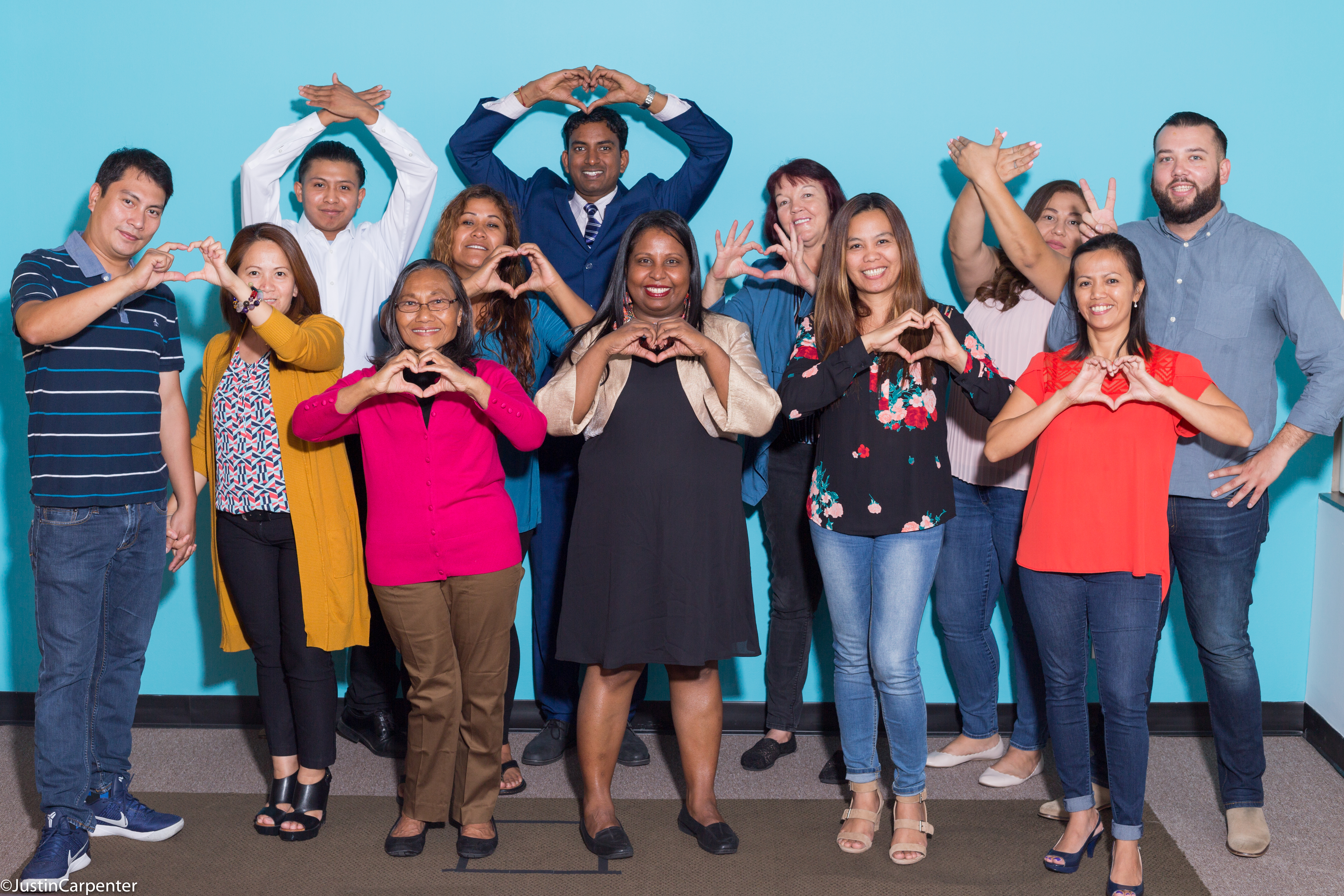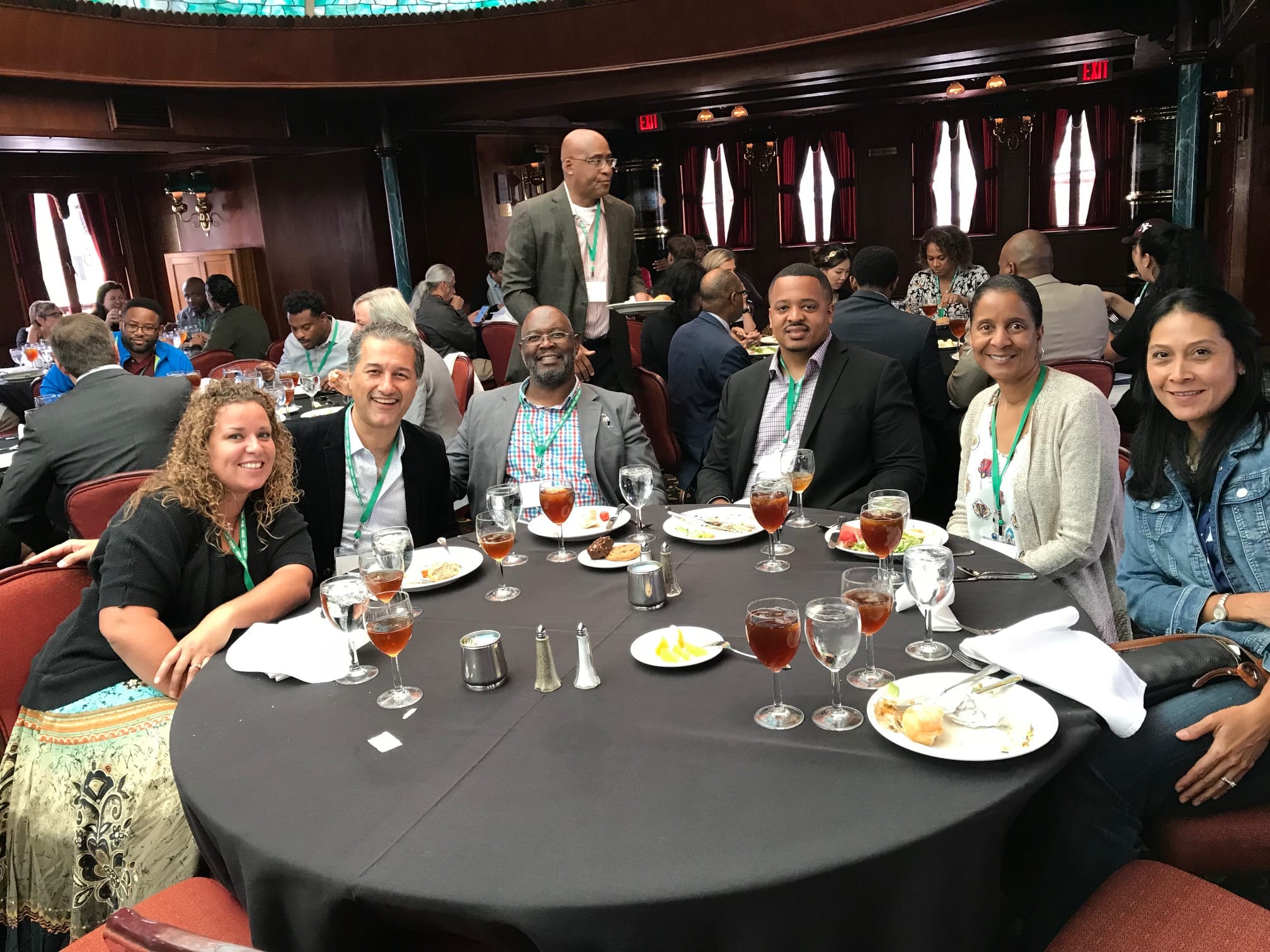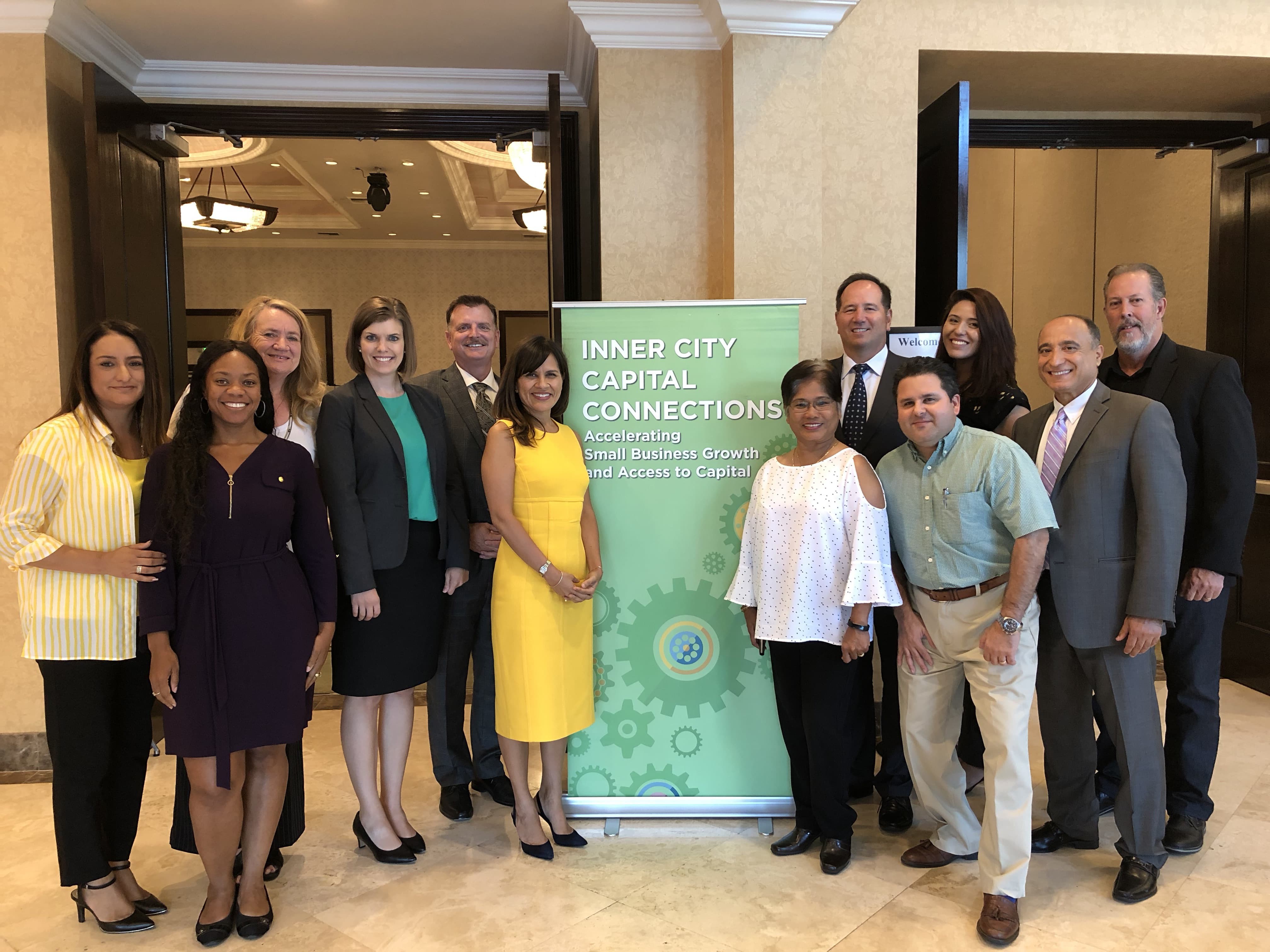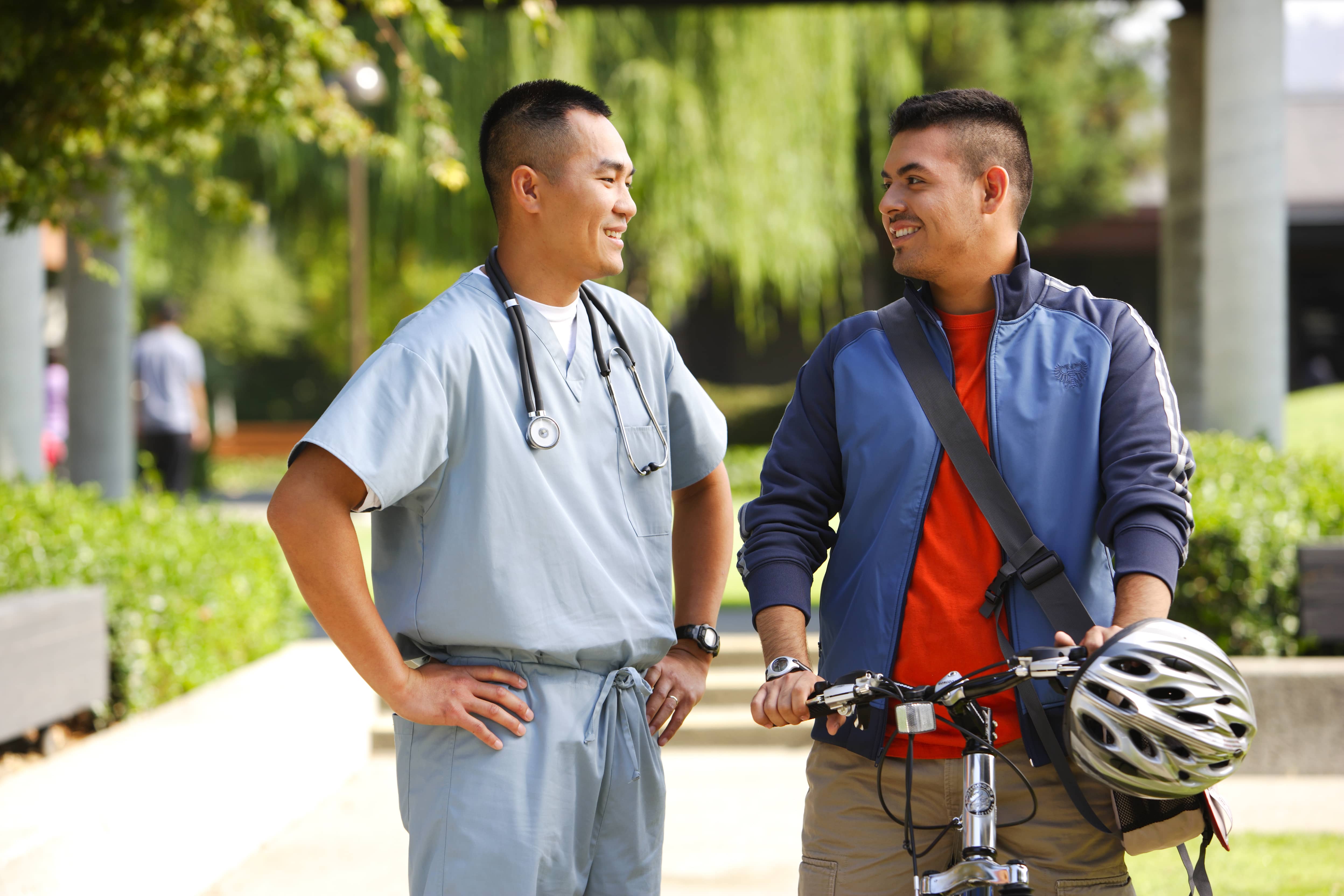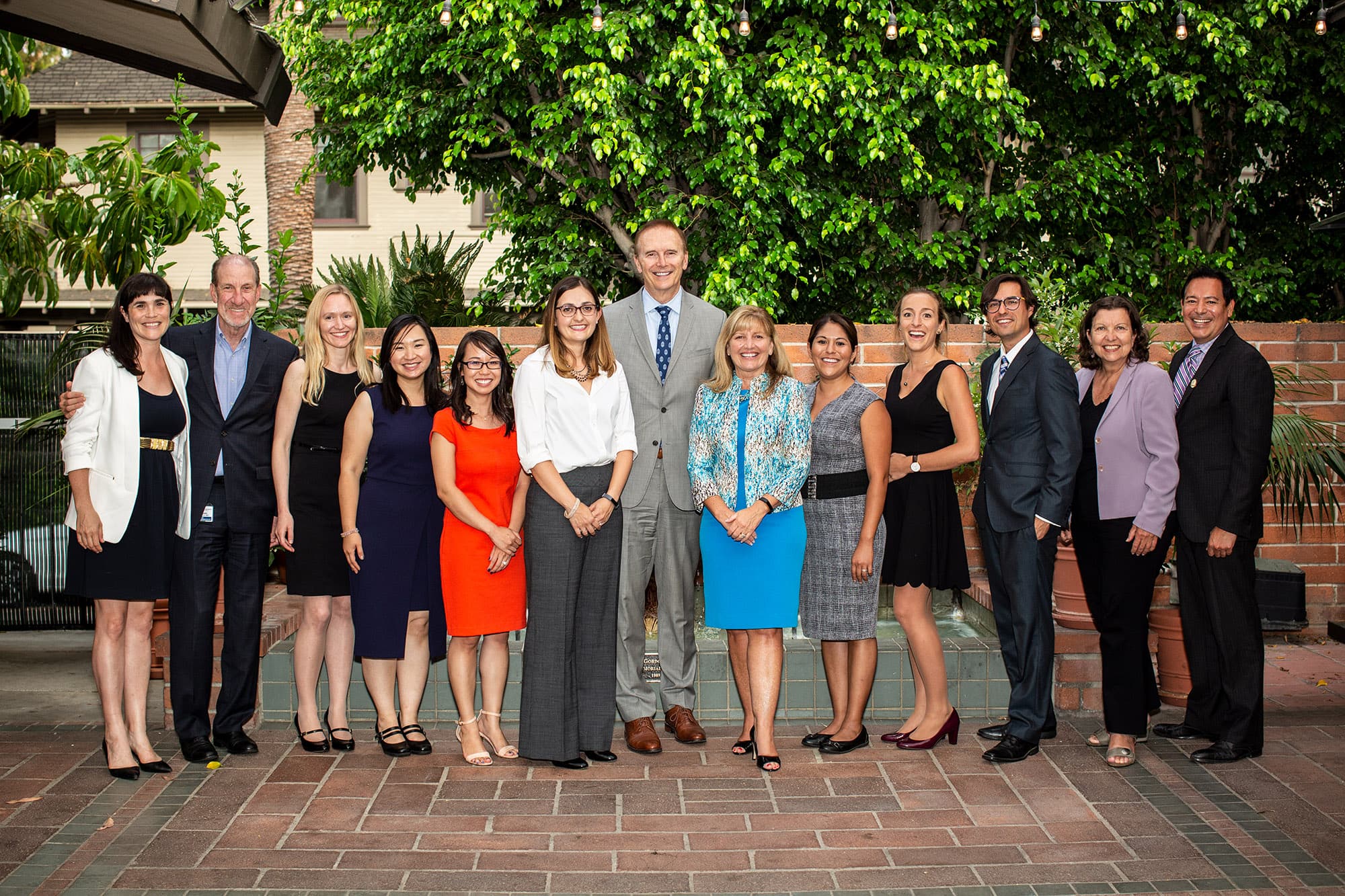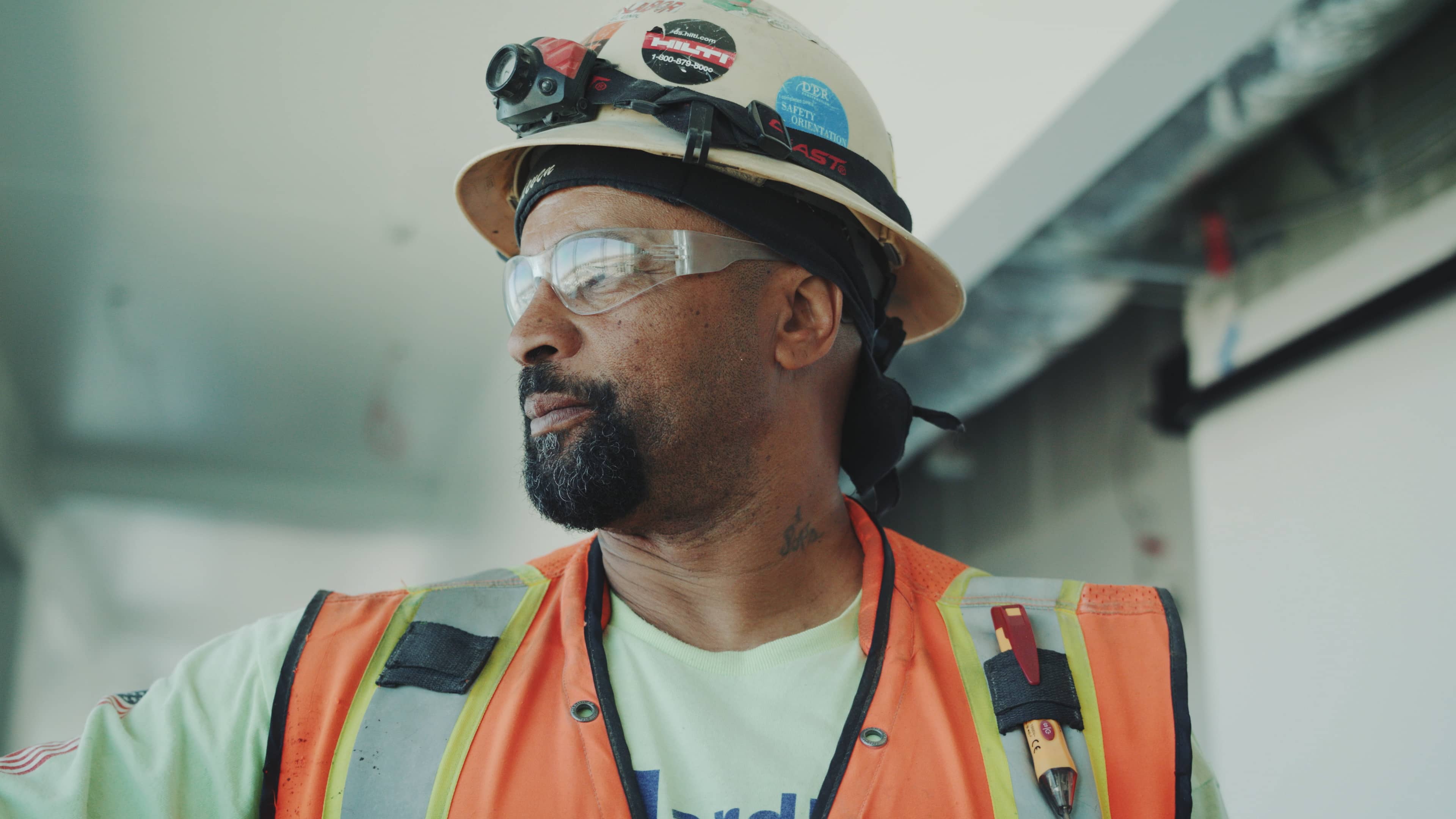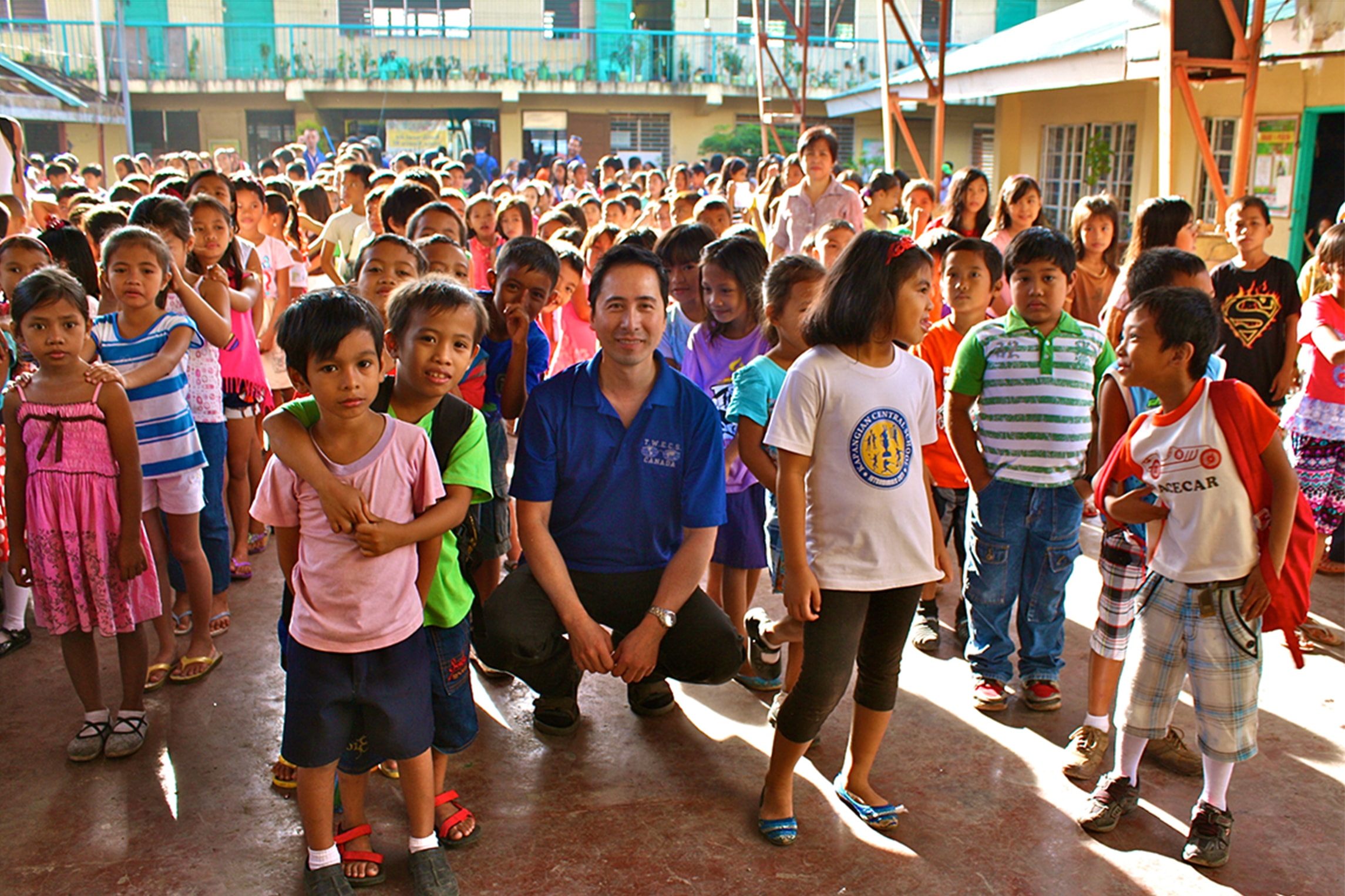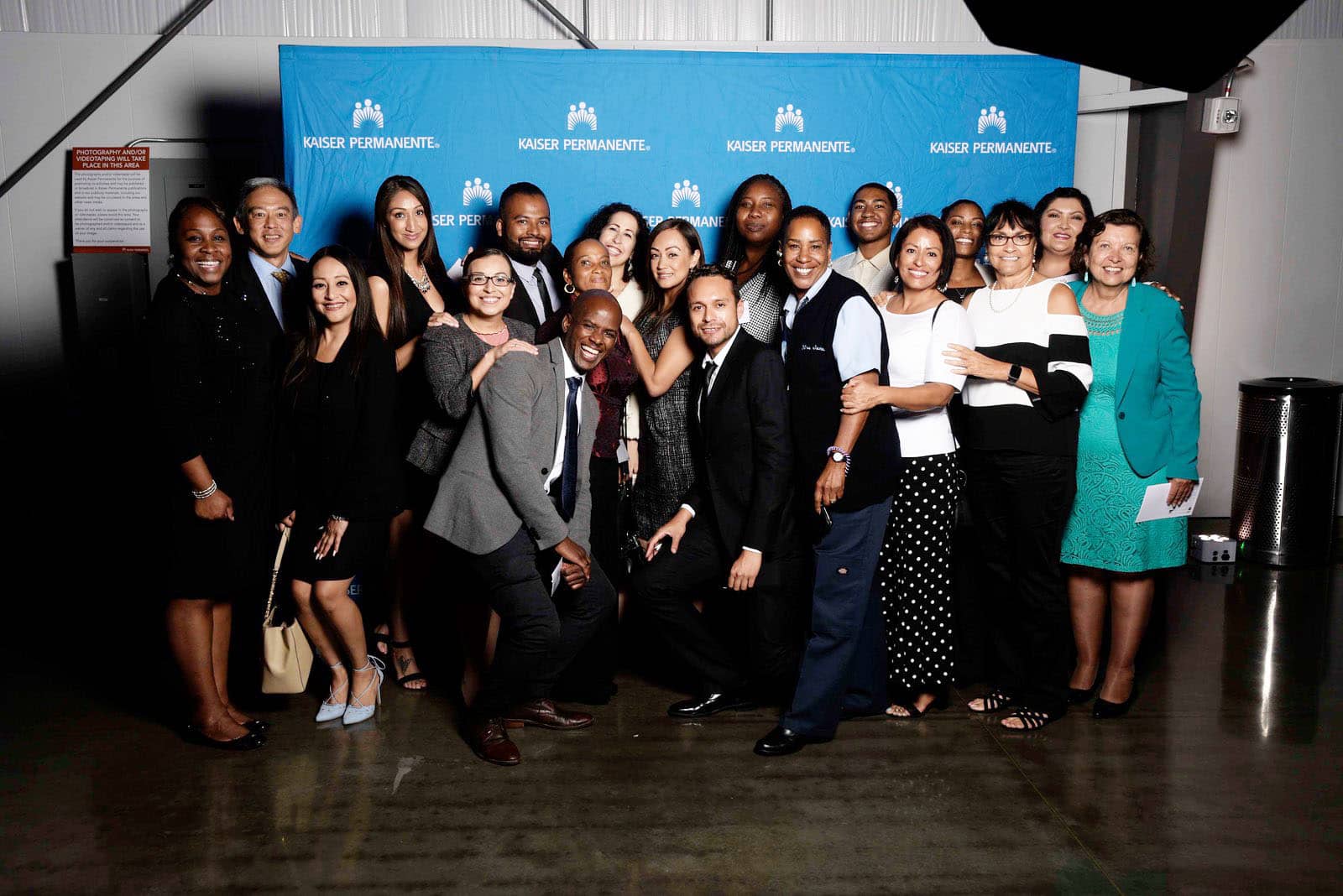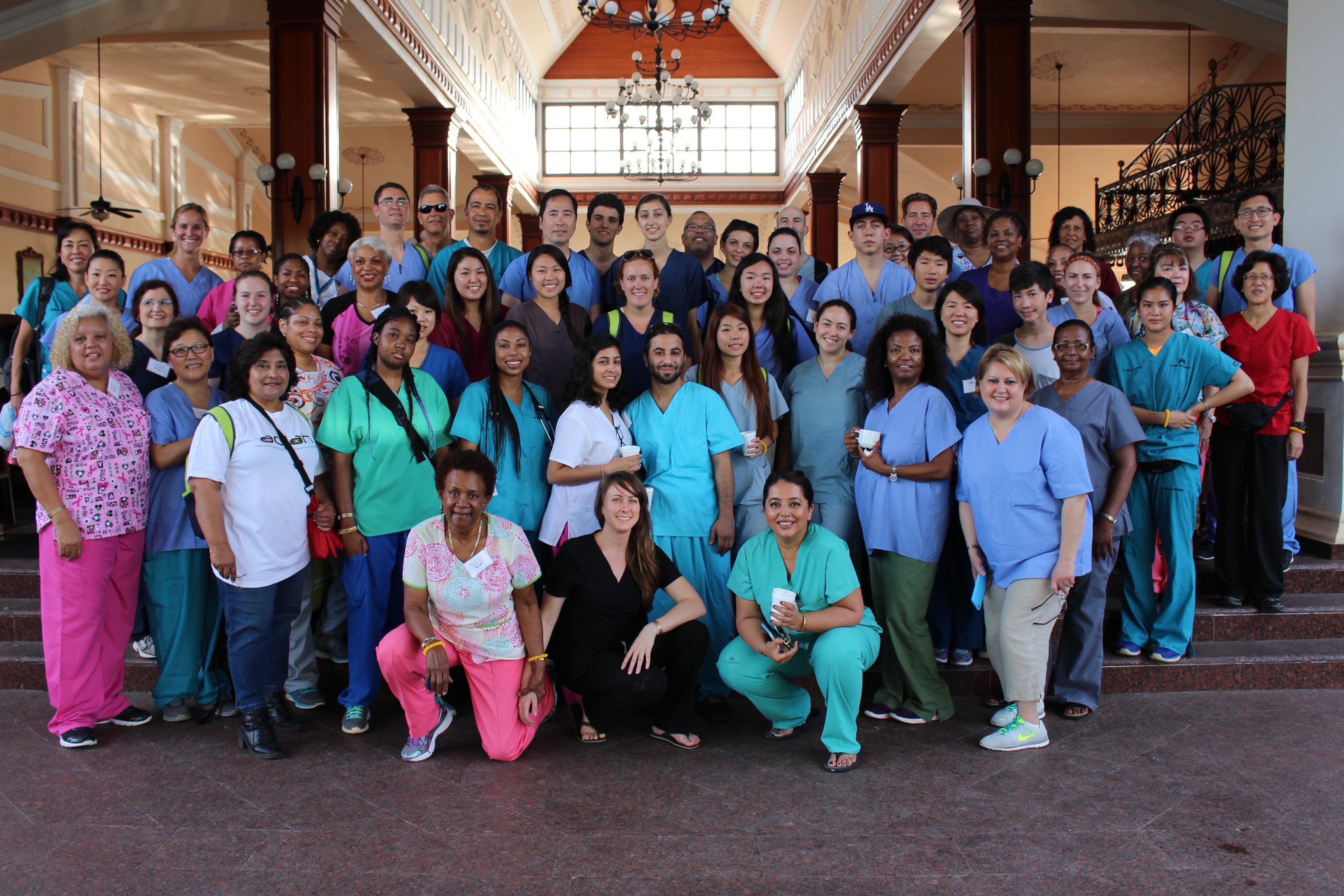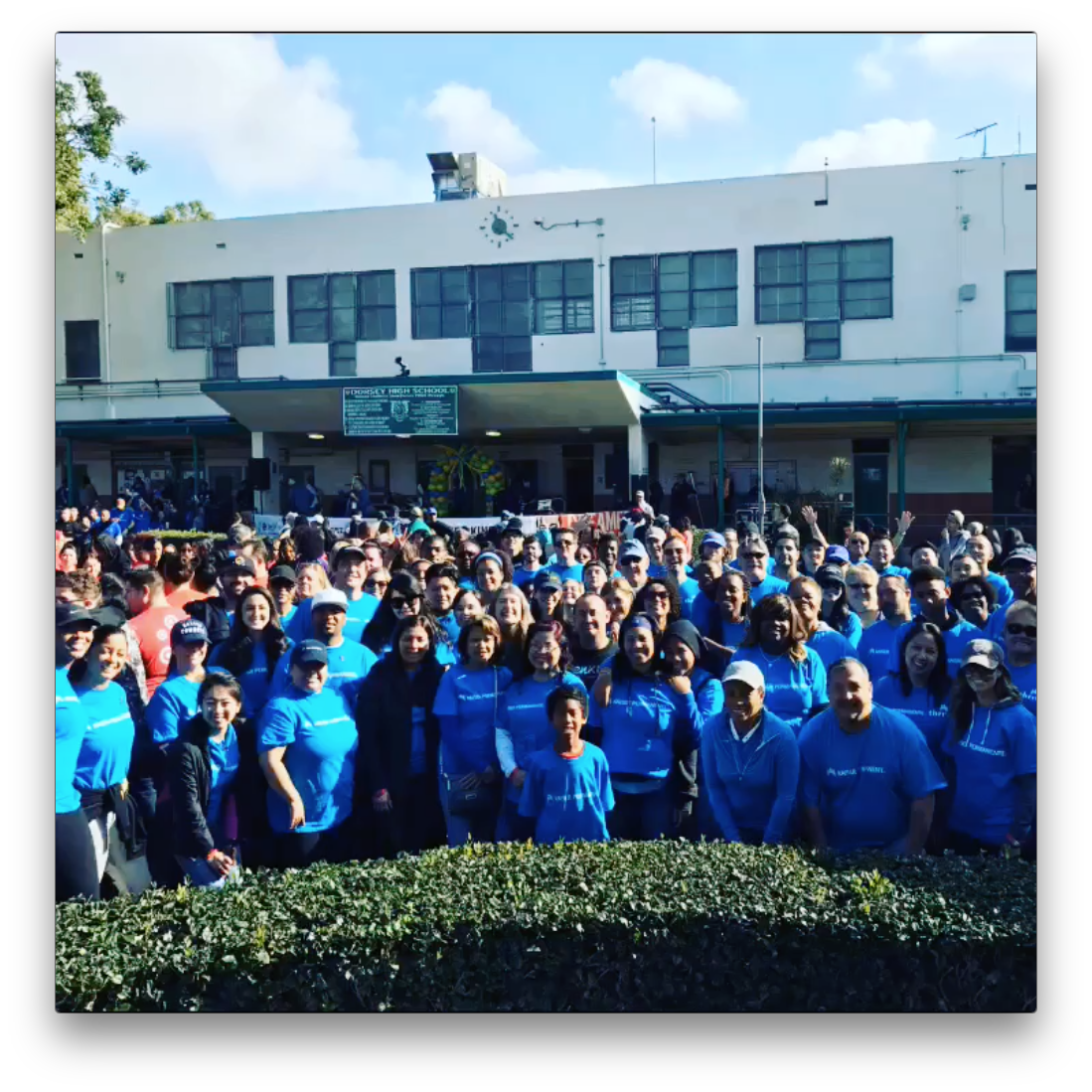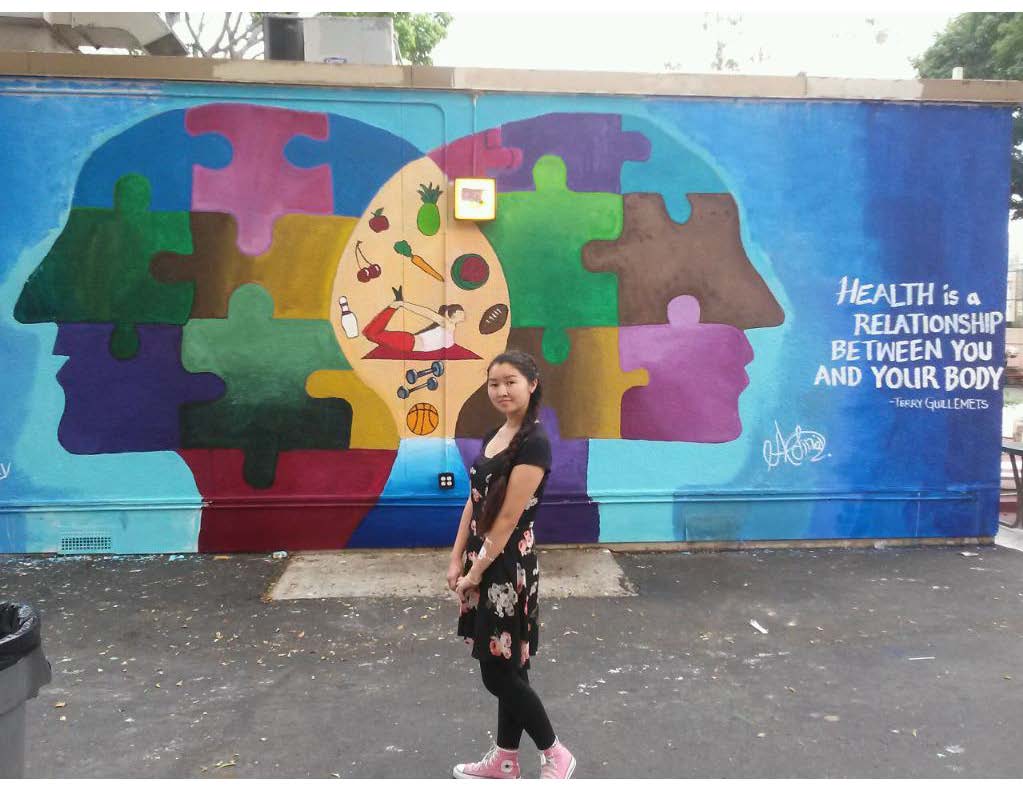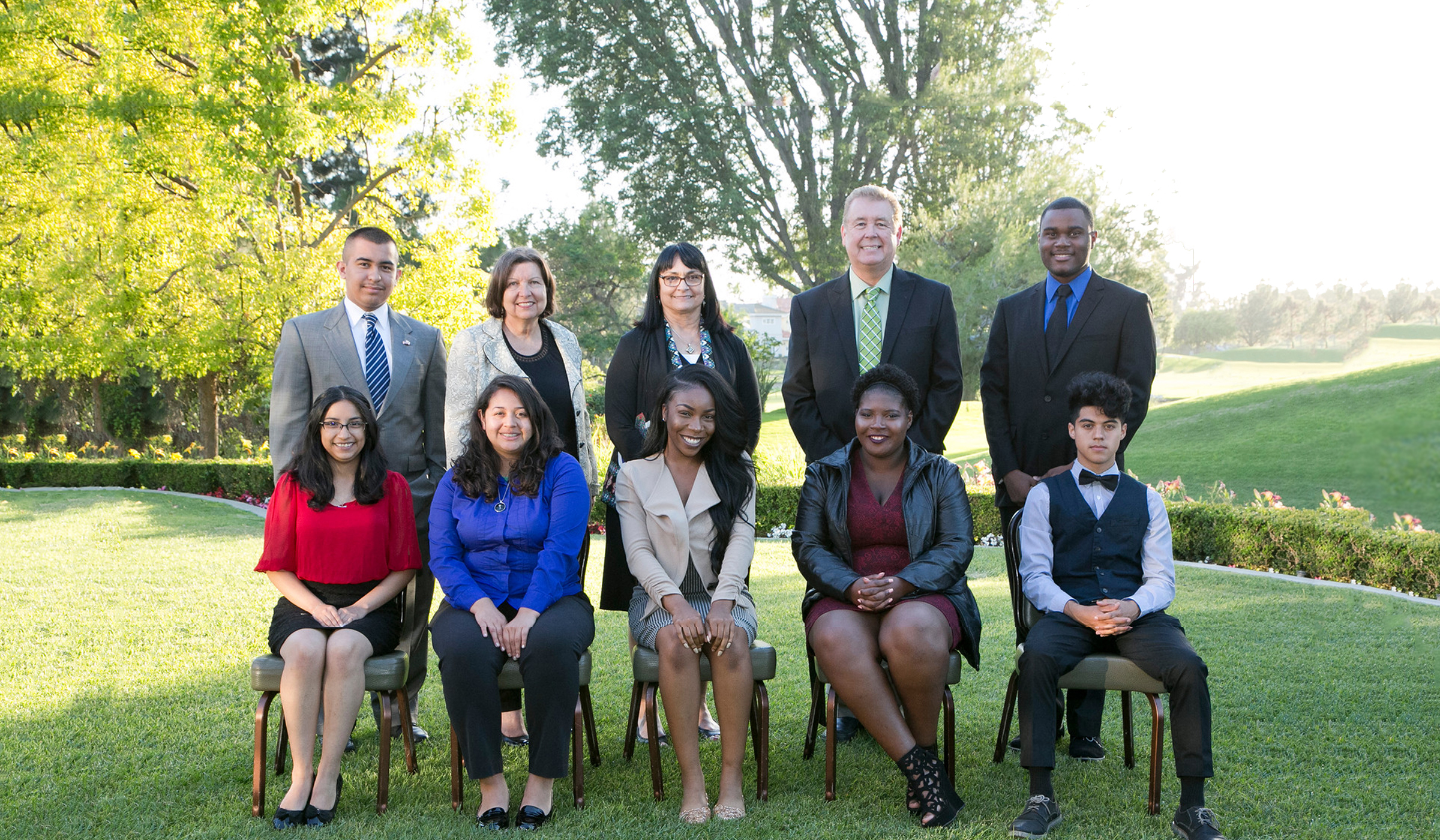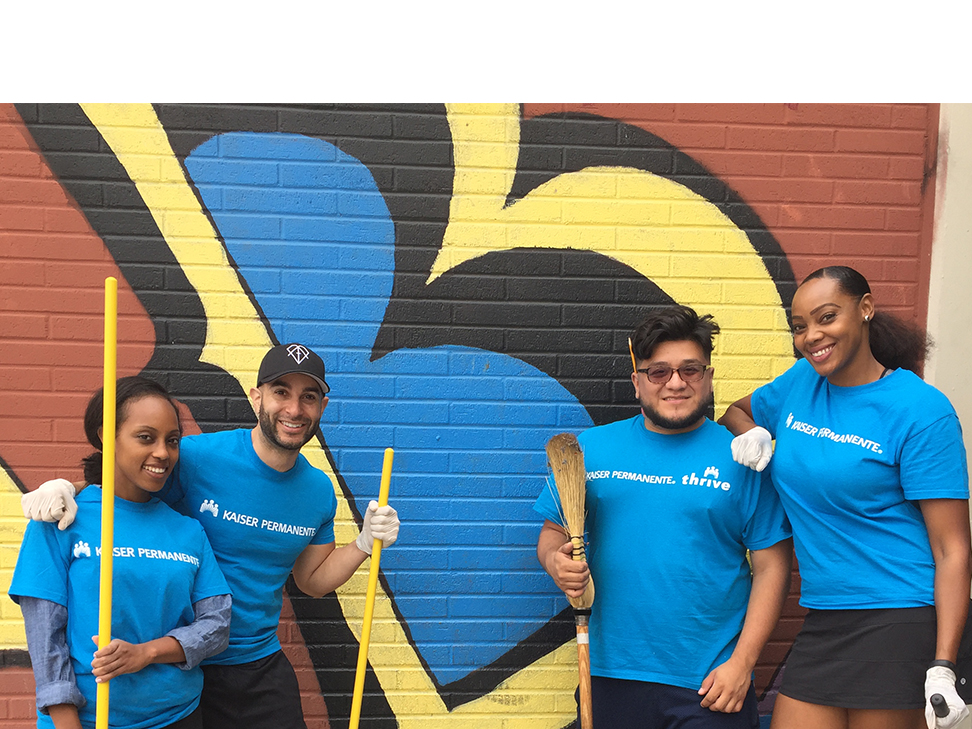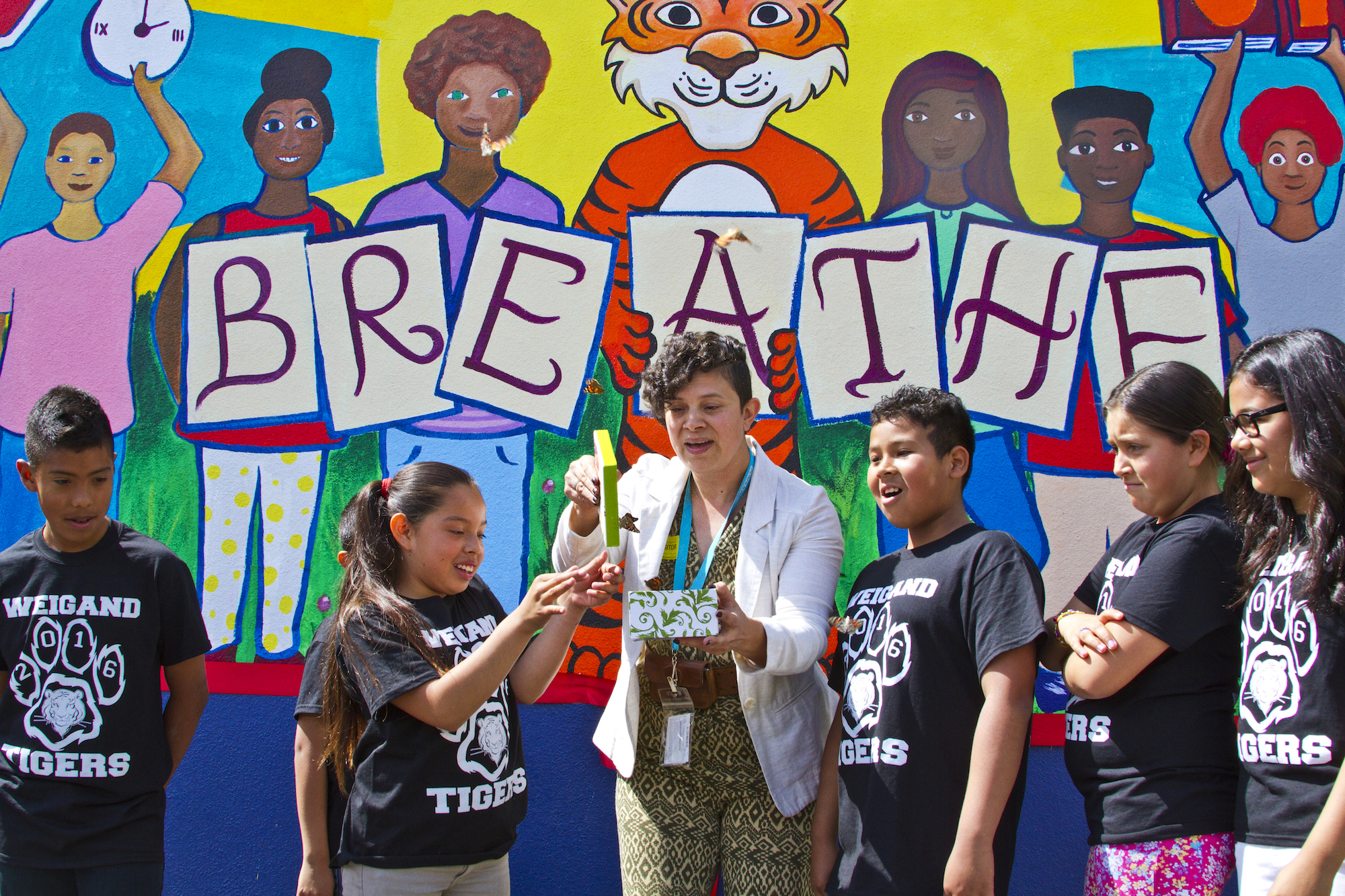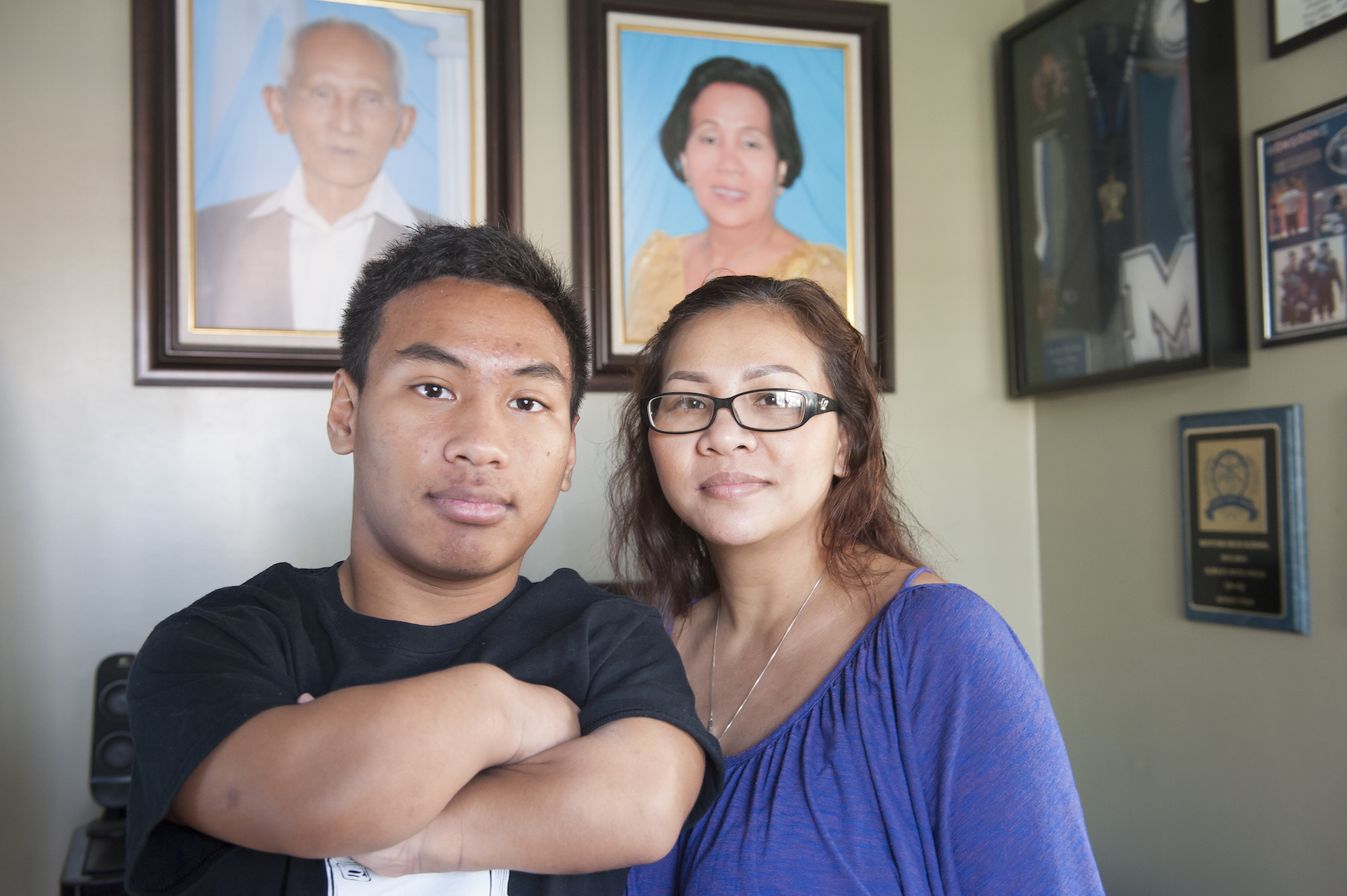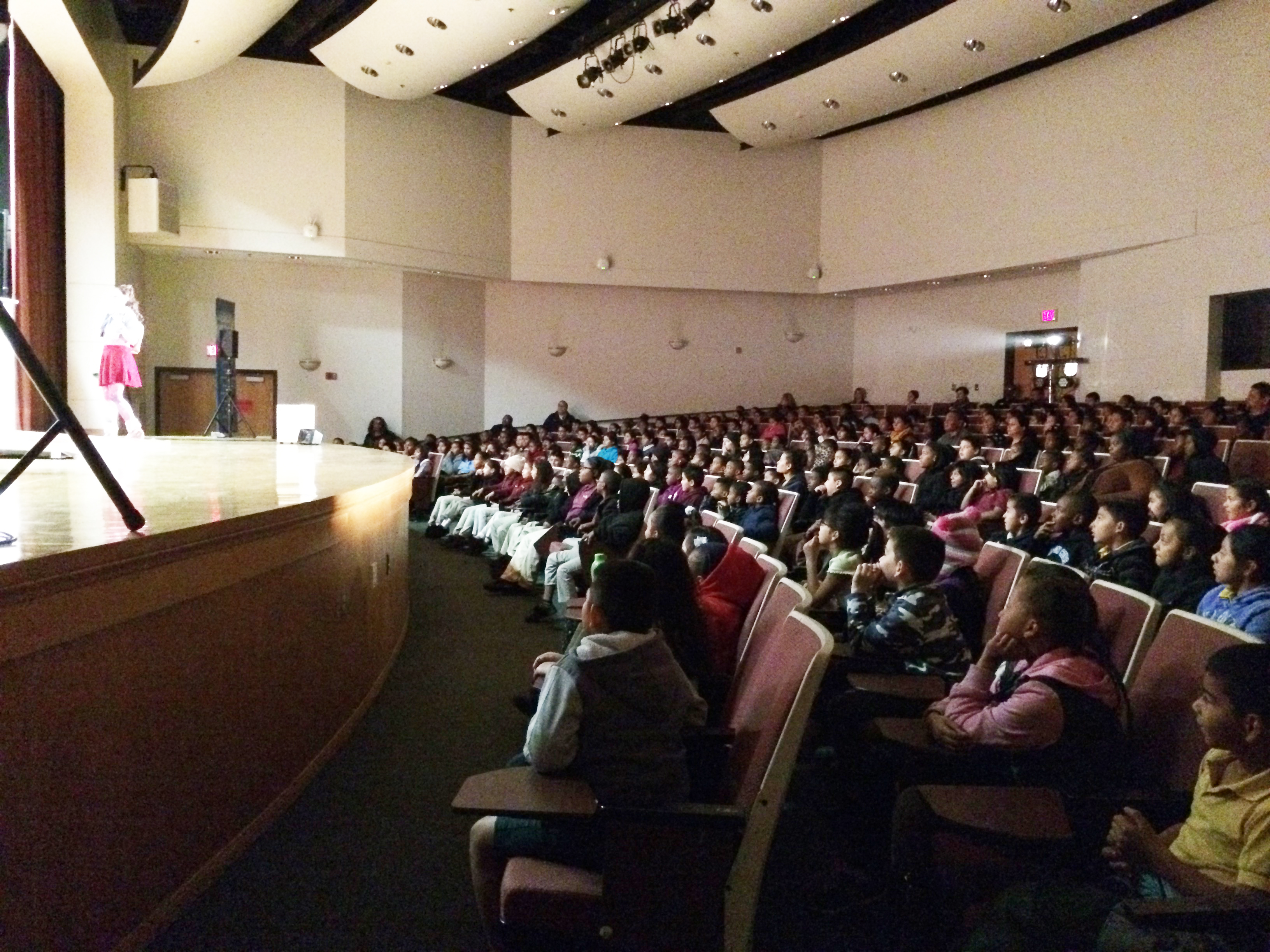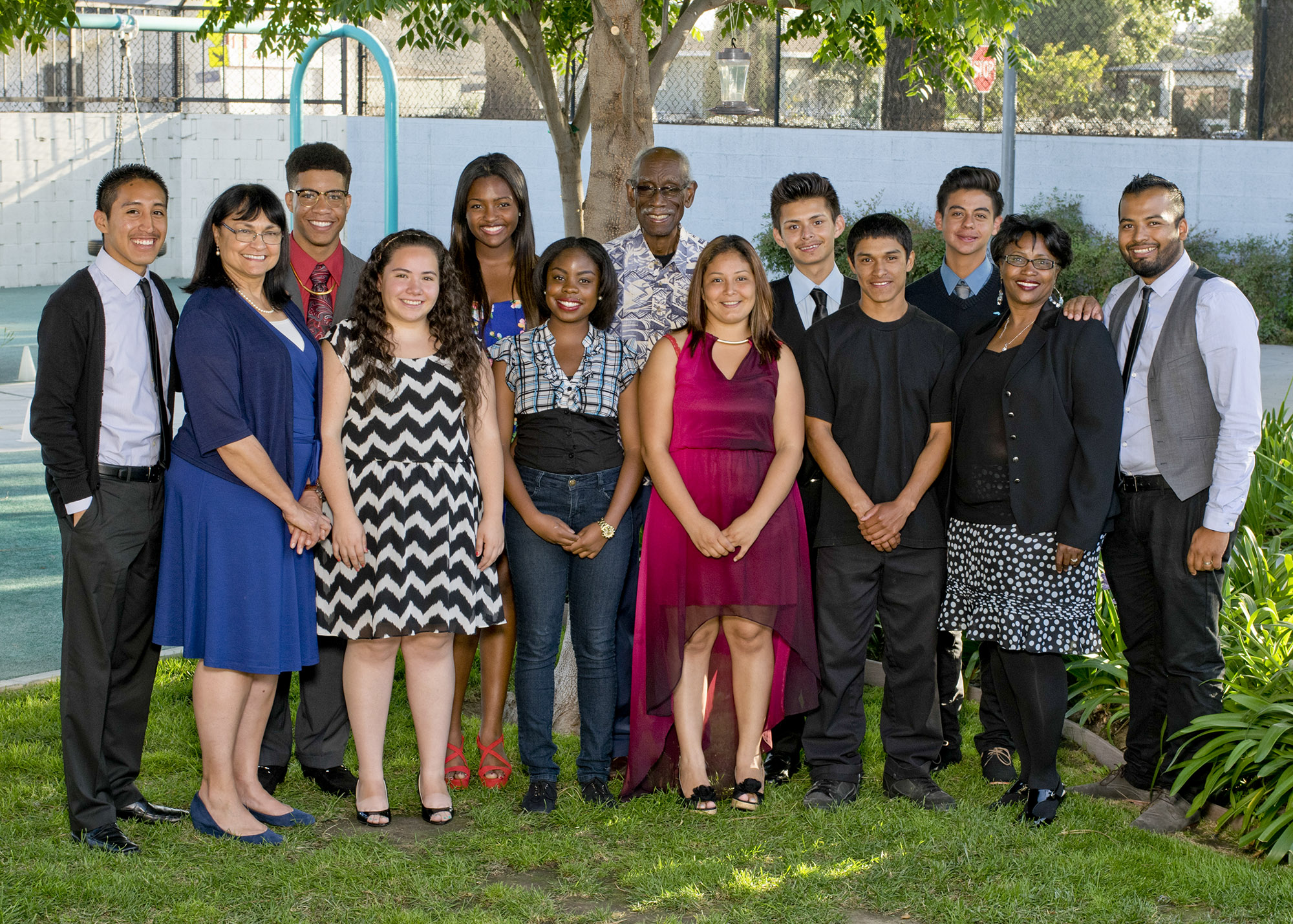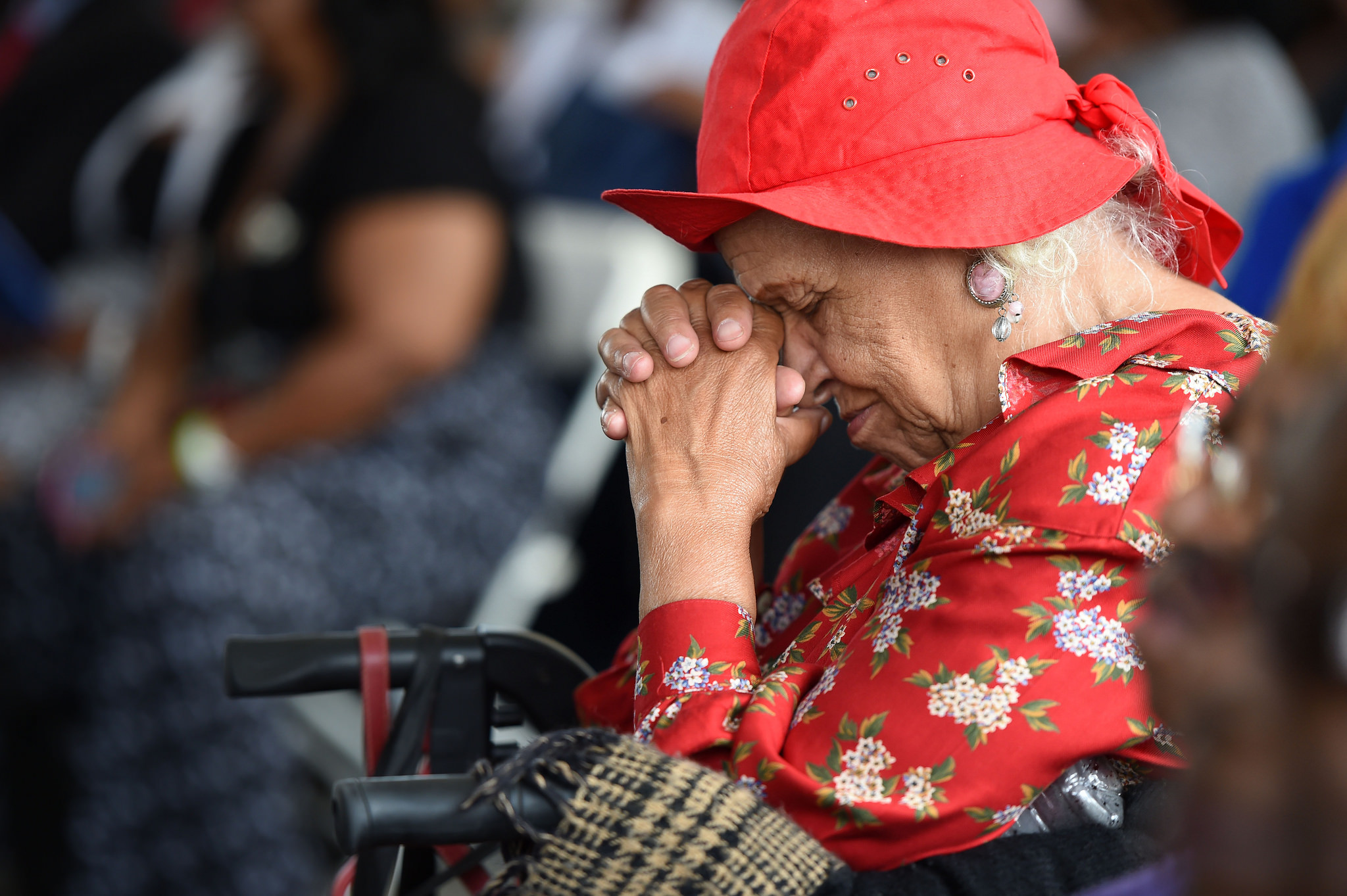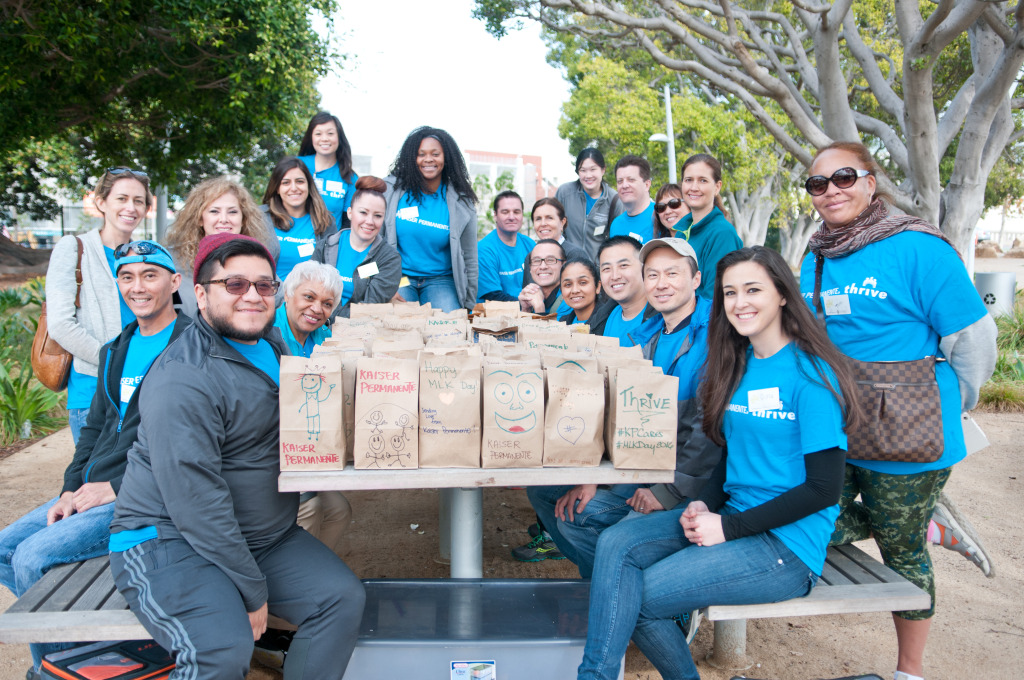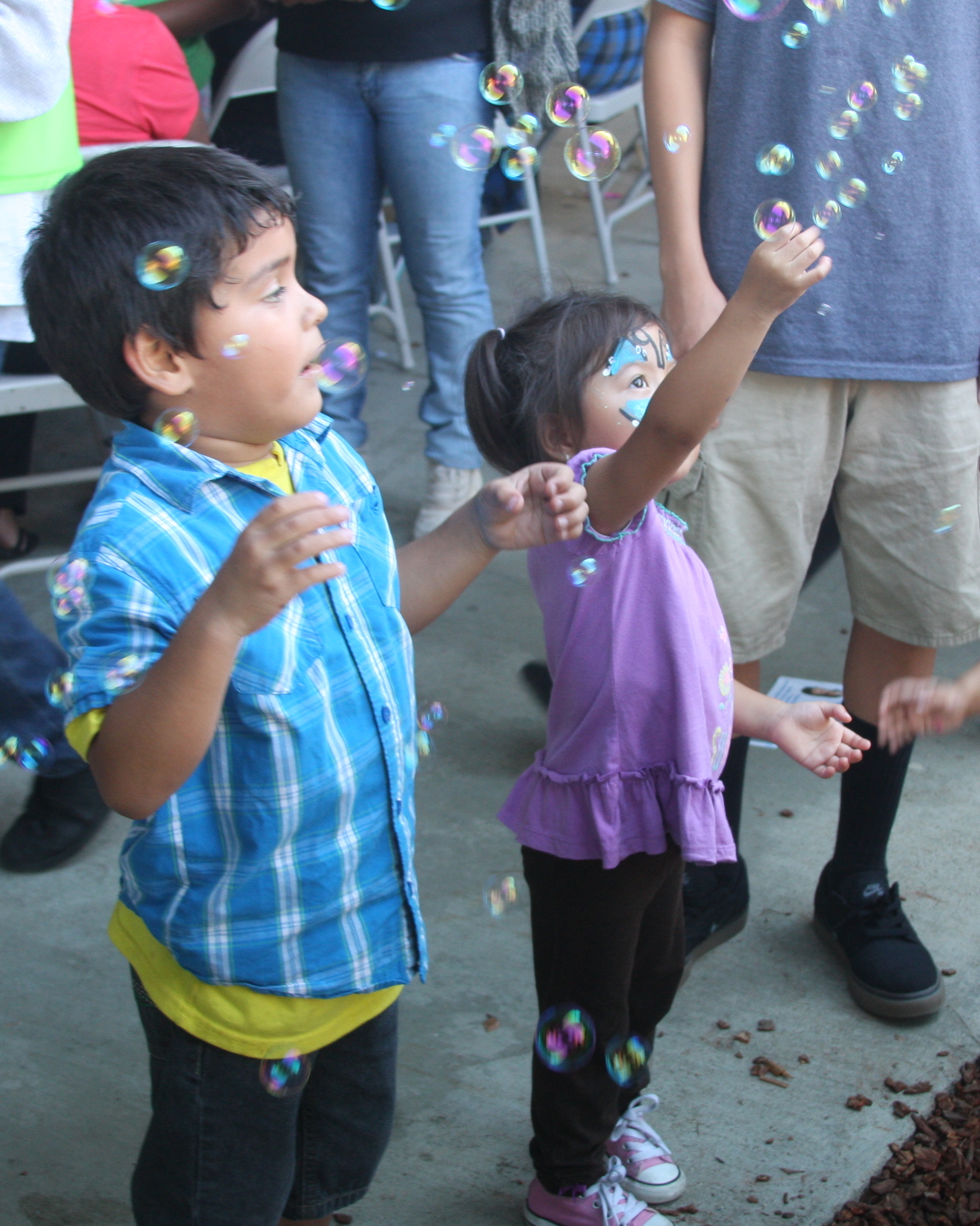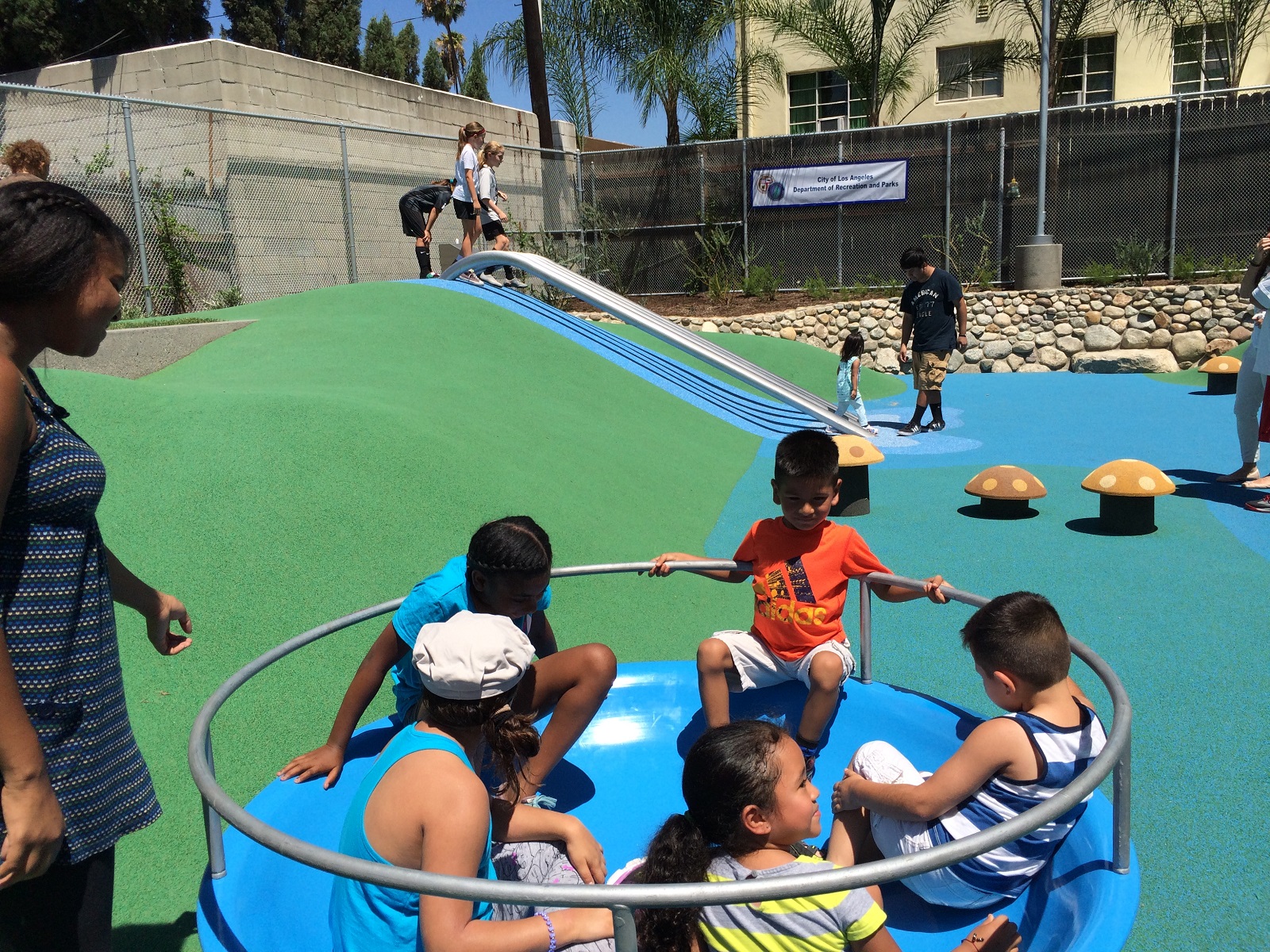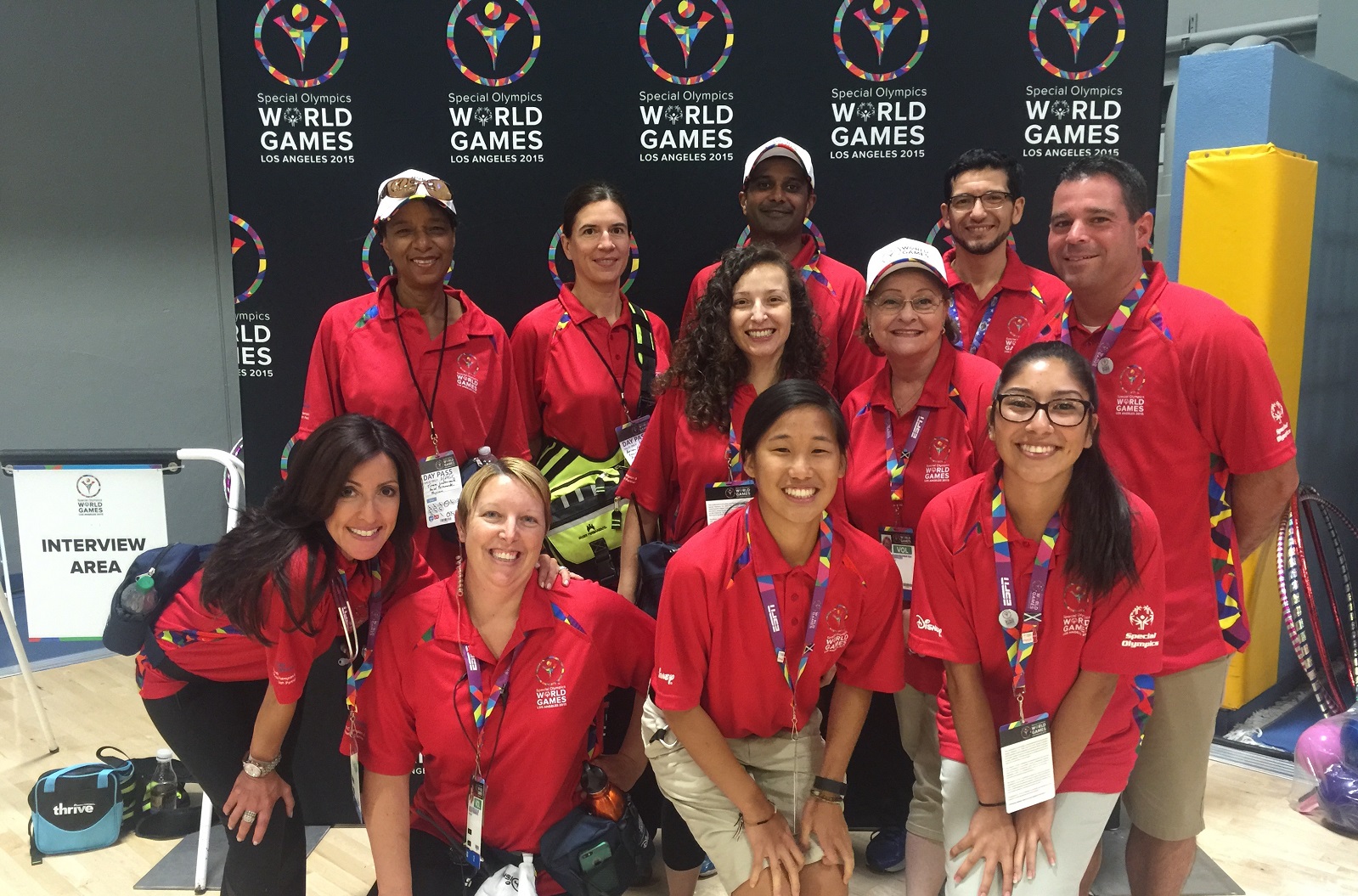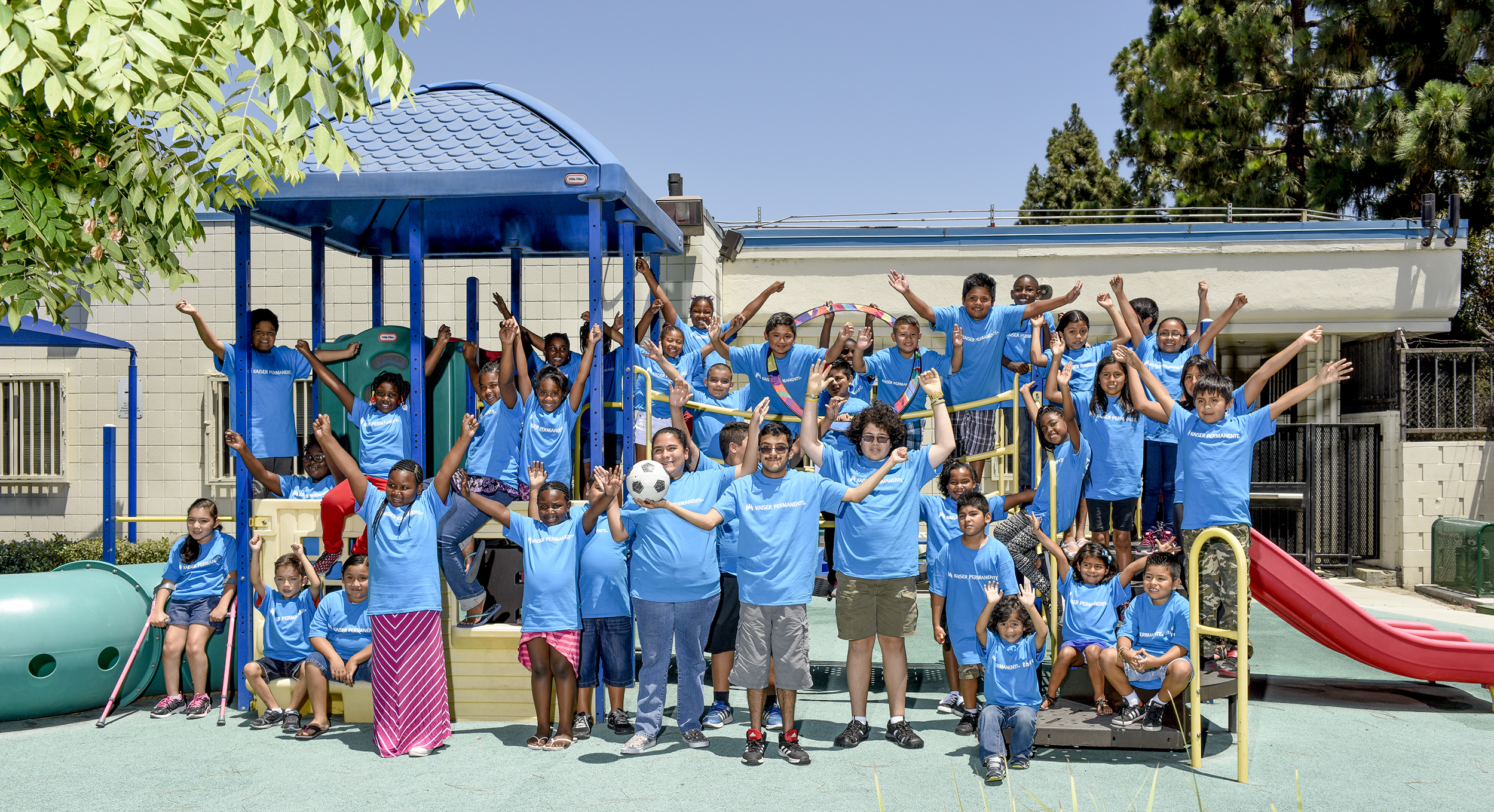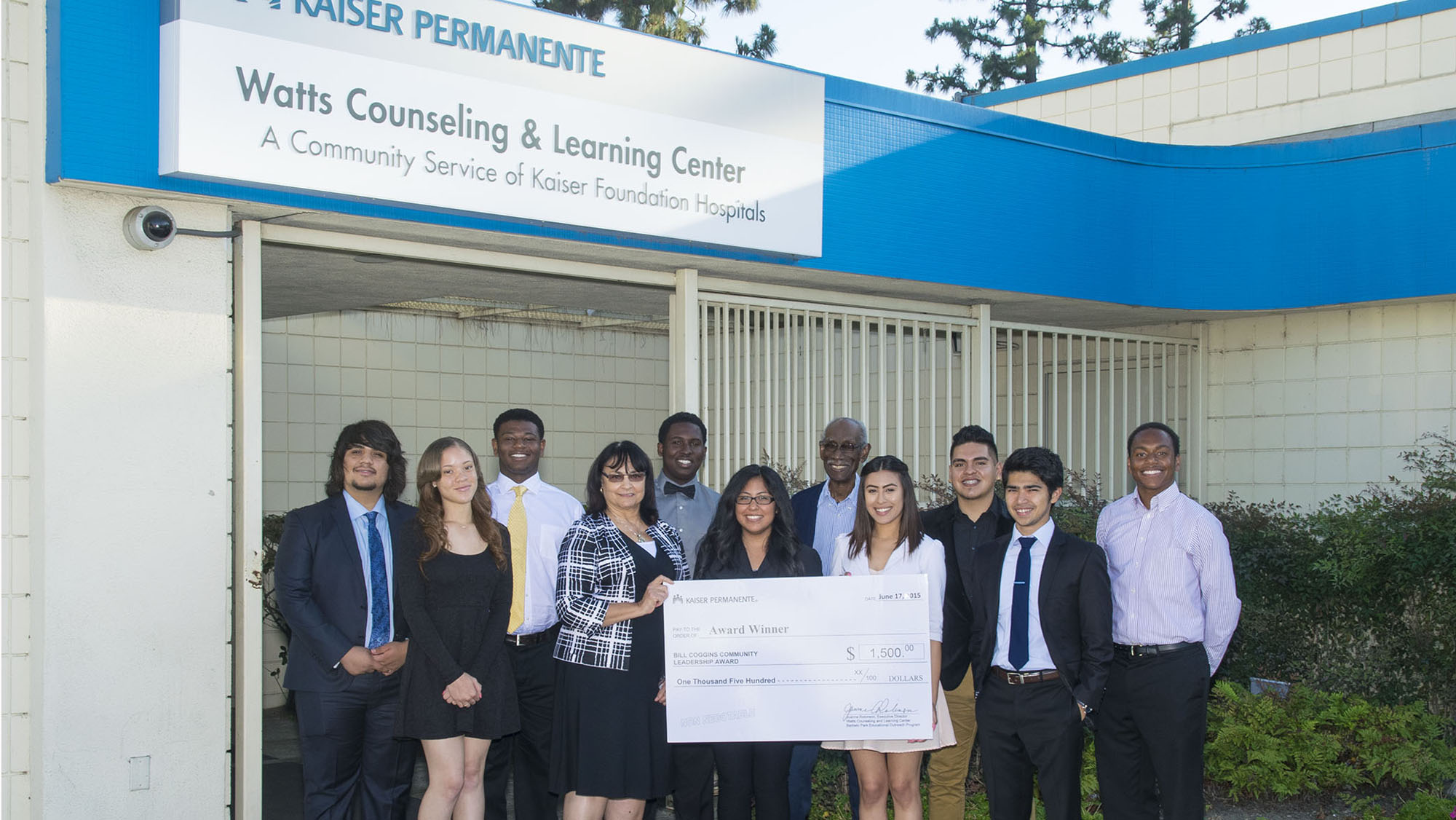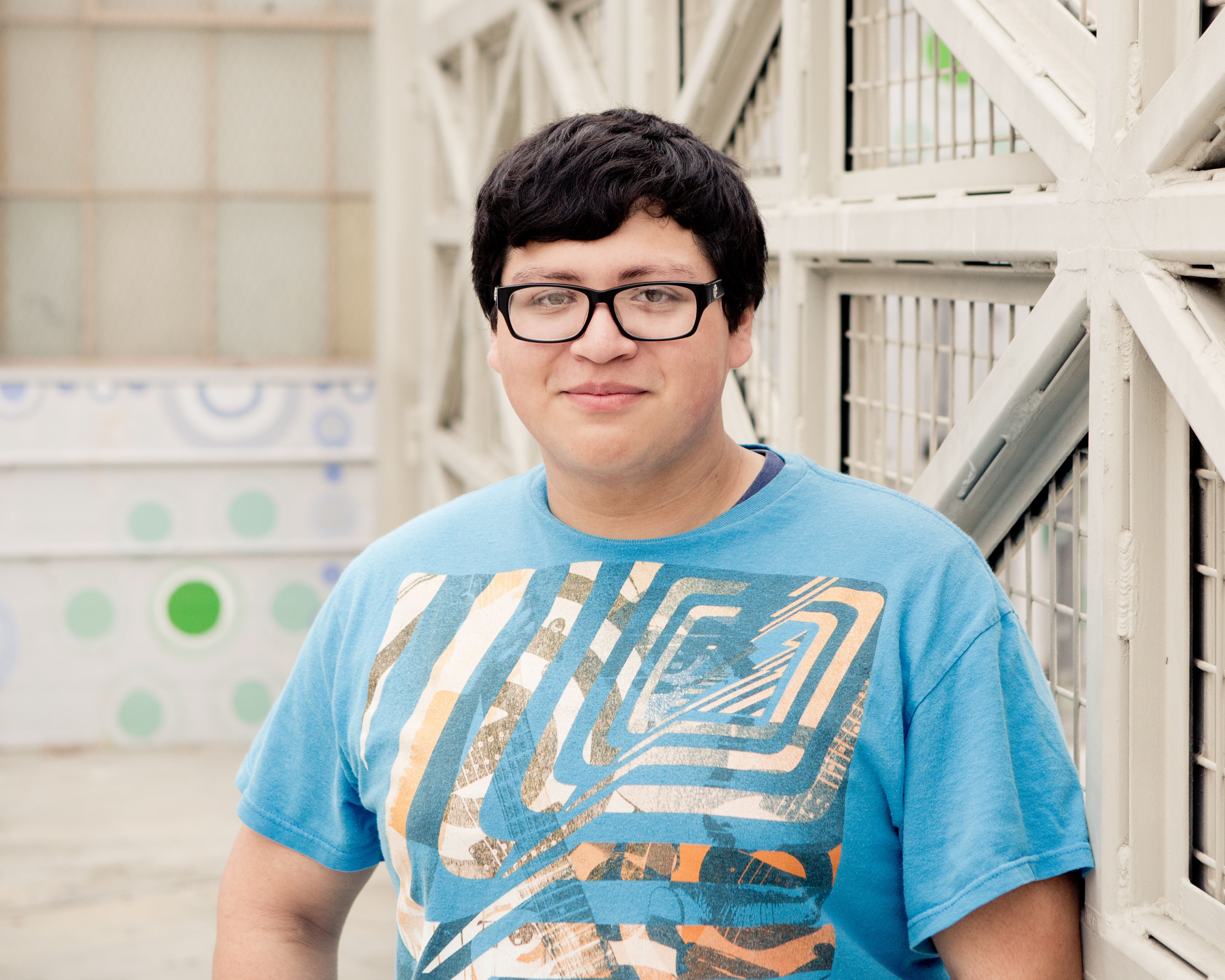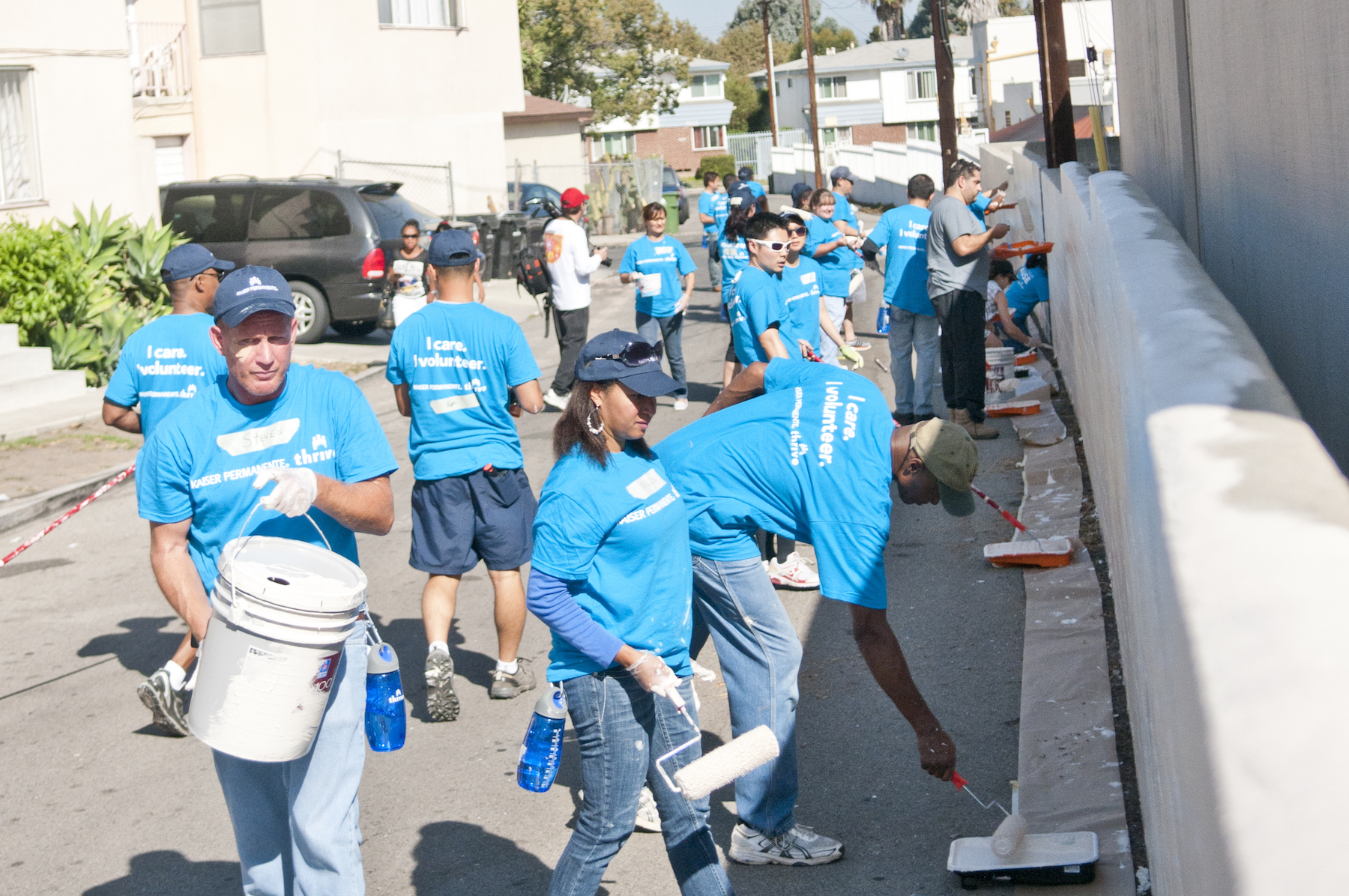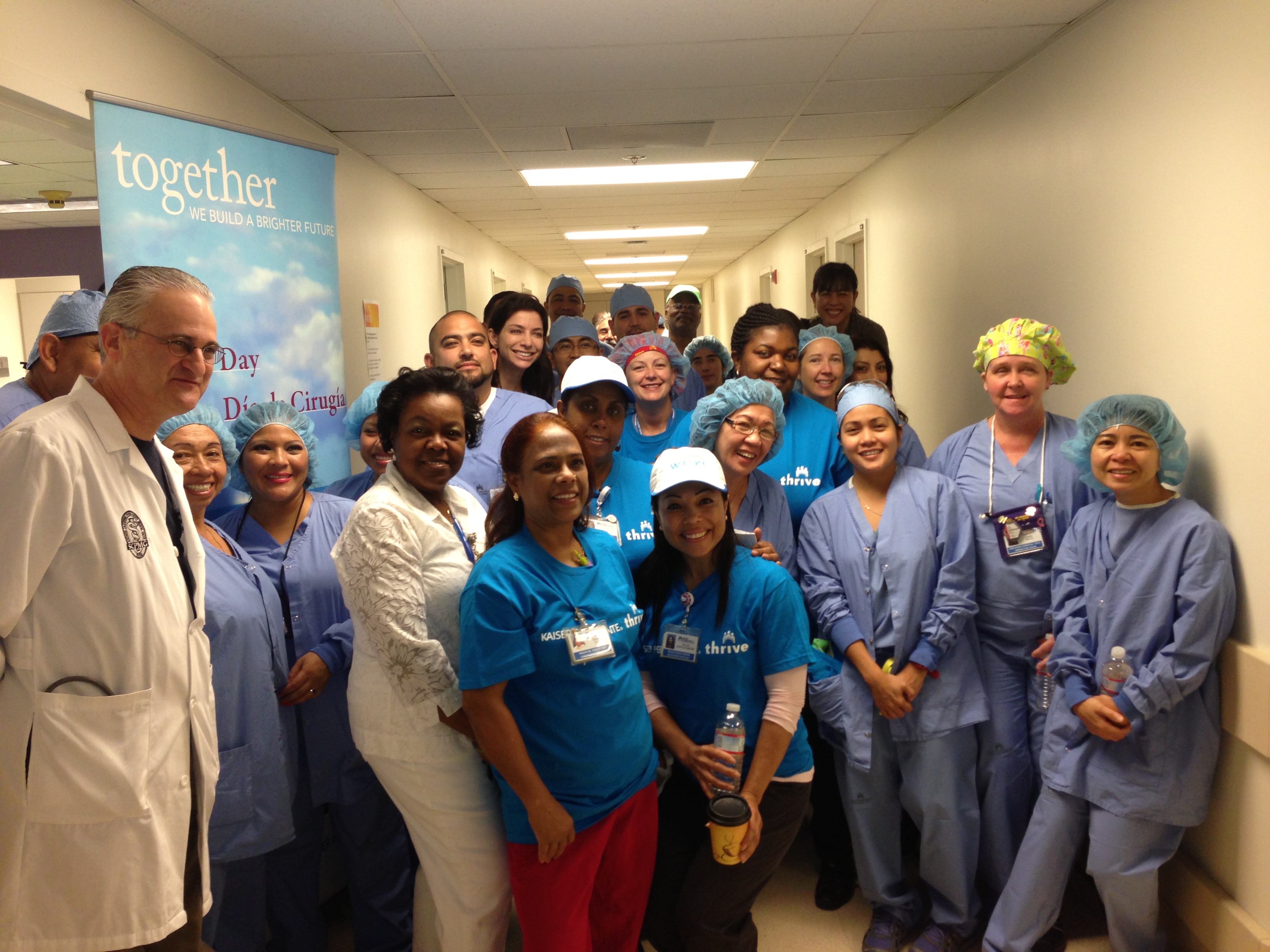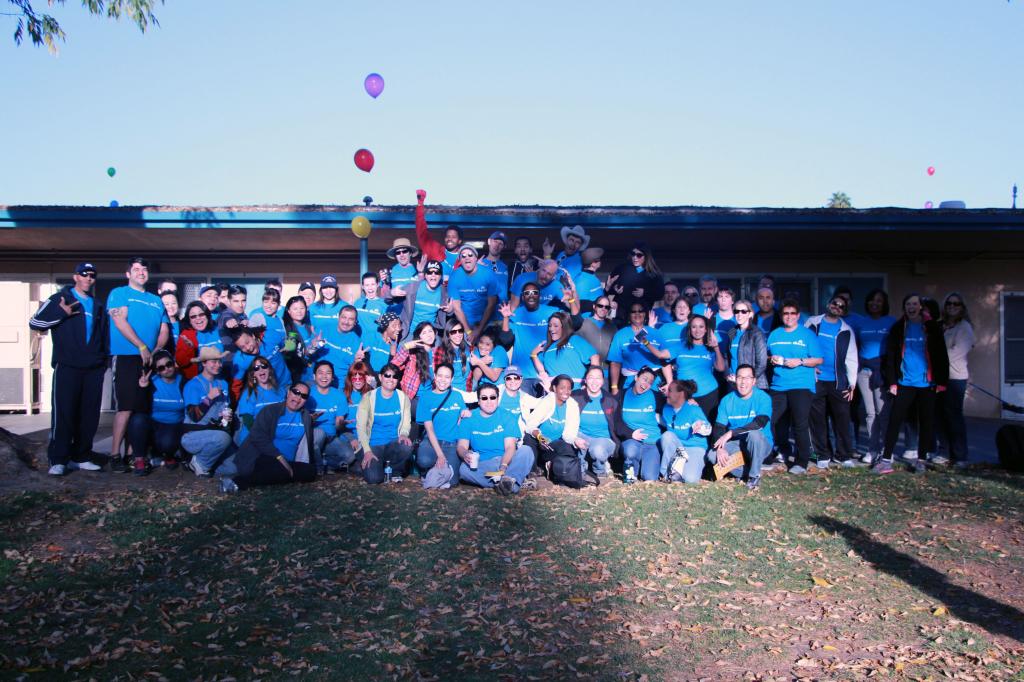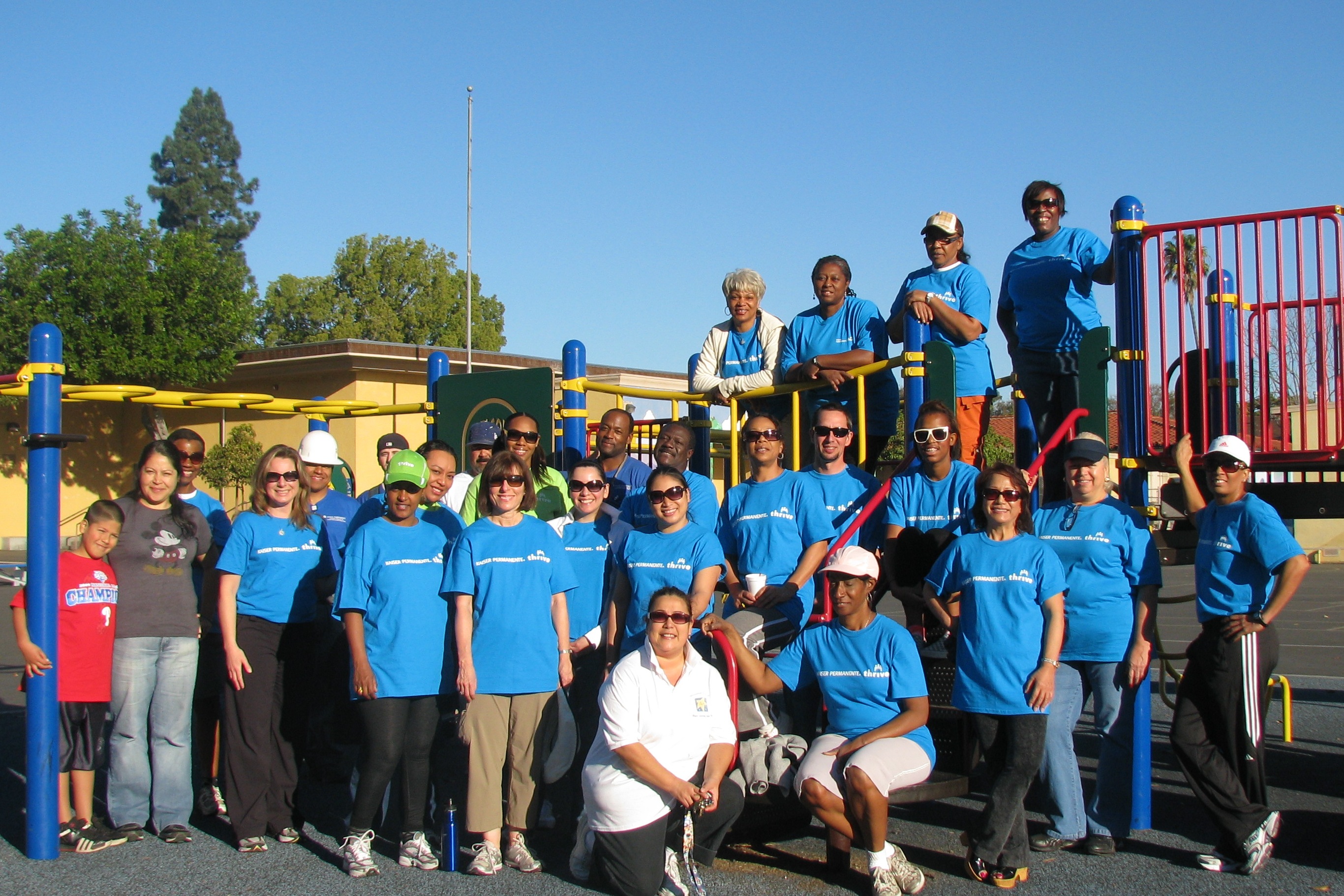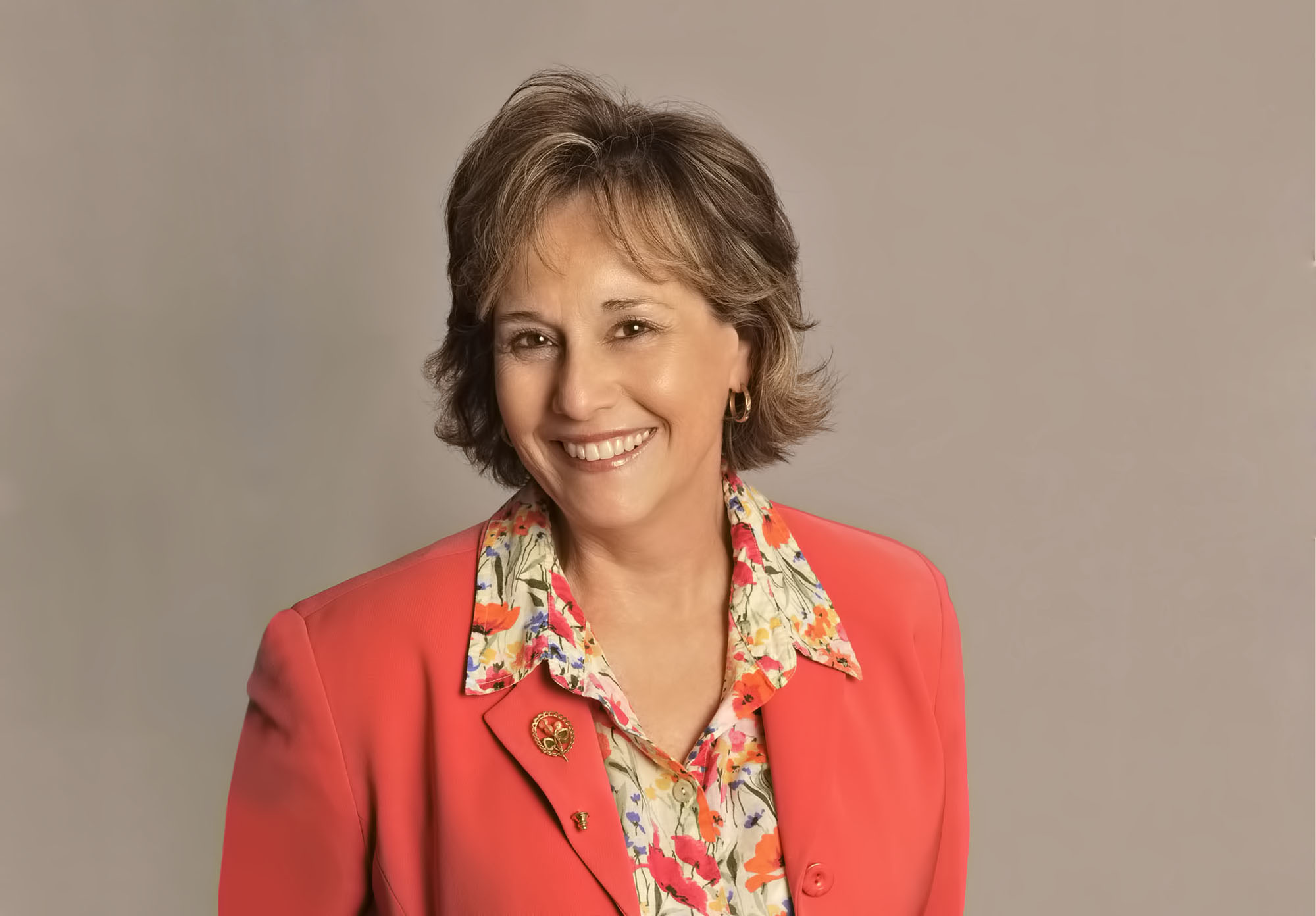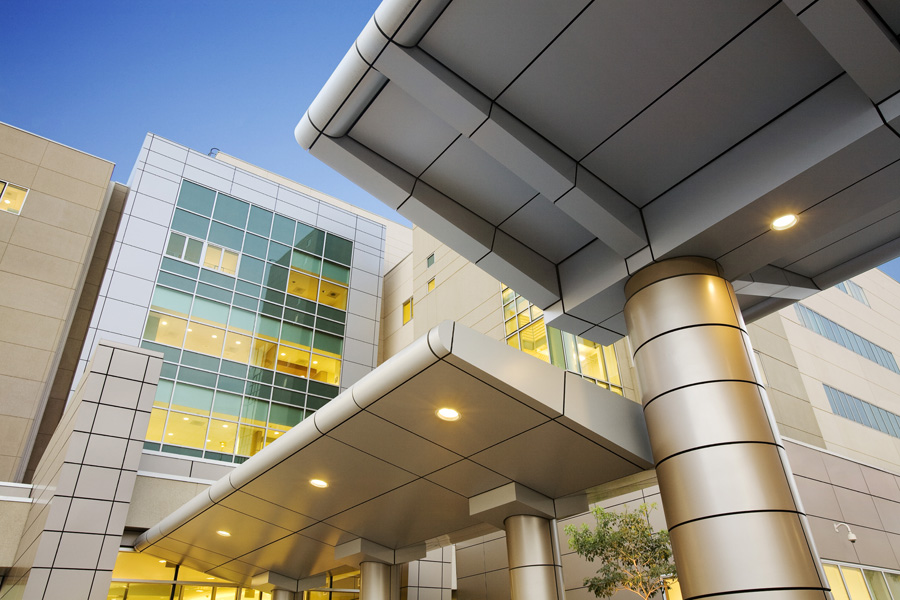
West Los Angeles Medical Center
Community Health is central to our mission because healthy communities are where people thrive. Like our approach to medicine, our work in the community takes a prevention-focused, evidence-based approach. In pursuit of our mission we go beyond traditional corporate philanthropy and grant-making to leverage our internal resources with our physician expertise, clinical practices, health education expertise, and technical assistance. Our commitment to community includes a robust engagement process that lifts the voice of community members and highlights priority health needs in our 2022 Community Health Needs Assessments (CHNA), and the Transitional Age Youth Photovoice Case Study. Through this process, Southern California Kaiser Foundation Hospitals identified urgent social and economic factors that negatively impact community health.
Based on the CHNA findings, the 2022 Implementation Strategy (IS) Plans of Southern California Kaiser Foundation Hospitals apply a health equity lens to outline our commitment to invest, partner, and drive change to improve the health of individuals in communities we serve. While each Kaiser Foundation Hospital IS plan is unique to its service area, the high-level focus areas and strategic priorities we aim to address across Southern California in partnership with community organizations are listed below:
Housing: Safe and secure housing is essential for the health of individuals and families. Example measures include home ownership and homelessness, housing affordability, quality, and cost burden.
Income and Employment: Economic opportunity provides individuals with jobs, income, a sense of purpose, and opportunities to improve their economic circumstances over time. Example measures include poverty and unemployment rates, and income inequality.
Access to Care: Access to comprehensive, quality health care services is critical for ensuring quality of life. Example measures of access include health care coverage and uninsurance, access to oral health and specialty care, and birth outcomes.
Mental and Behavioral Health: Mental & behavioral health affects all areas of life, including a person’s physical well-being, ability to work and perform well in school, and to participate fully in family and community activities. Example measures include access to mental health care, poor mental health and stress, and suicide and deaths of despair (Note: there is a separate need category for substance use).
Structural Racism: Structural racism refers to the normalization and legitimization of an array of dynamics-historical, cultural, institutional and interpersonal-that routinely advantage whites while producing cumulative and chronic adverse outcomes for people of color. It is reflected in health disparities and inequities by race.
Food Insecurity: Food insecurity occurs when people do not have enough resources to meet their basic needs, including having enough food to eat to lead an active, healthy life. Example measures include accessibility of retail food outlets, SNAP enrollment, and living in food-insecure households.
Across these areas, we work to inspire and support people to be healthier in all aspects of their lives, and build stronger, healthier communities. In addition to dedicating resources through Community Benefit, we also leverage substantial additional assets that improve community health, including our healthcare workforce volunteerism.
At Kaiser Permanente, we believe in using the full range of our organization’s assets to improve the health of the communities we serve. We regularly gather data and seek input from our community partners and members to inform our investments and to guide the development of strategies that can make long-term, sustainable change and improve health. We are pleased to share our 2022 Community Benefit Year-End report for the Kaiser Foundation Hospital in West Los Angeles that summarizes our efforts and highlight specific strategies and resources we deployed to respond to the prioritized health needs in the community.
Note: While Kaiser Permanente is committed to addressing these needs, local medical centers will strategically and carefully invite community partners to apply for funding in order to address needs that align with the local Implementation Strategy Plans, which may have some variations of the strategic priorities listed above. Please scroll down to view the areas that are currently being funded in this medical center.
KP West LA Faith Based Partnerships for Healthier Communities
Our Faith Based Partnerships for Healthier Communities program seeks to improve the health of our community by educating and empowering faith-based community support networks. KP West LA partners with WISE and Healthy Aging to implement this program. The program focuses on linking medical center assets with congregation health ministries in order to increase their capacity to deliver meaningful health programs, become stronger health advocates, and to increase their connections to other key stakeholders, such as community clinics and health advocacy organizations.
As part of our faith-based initiative, we offer chronic disease management training for community partners. The training prepares congregation representatives to conduct Healthier Living with Chronic Conditions workshops within their organizations. To learn more about the training, please click here.
To help us spread the word and let others in your community know about Kaiser Permanente West Los Angeles’ Faith Based Partnerships program, please download and print this flyer.
West Los Angeles
Recent Related News
- May 22, 2018 – Kaiser Permanente Announces $200 Million Impact Investment, Partners with U.S. Mayors and CEOs
- May 14, 2018 – Leadership Winner Recognizes Health Depends on Economic Opportunities
- May 14, 2018 – Kaiser Permanente Joins de Beaumont Foundation as National Partner in CityHealth Initiative
West Los Angeles Medical Center Grants Program
The Kaiser Permanente West Los Angeles Medical Center 2023 Community Benefit Grants are awarded through a “By Invitation Only” grant process.
Kaiser Permanente West Los Angeles provides grants to local nonprofit health and human service organizations that address the priority health needs for its community service area. The current funding priorities, funding timeline, and application guidelines are provided below. Prospective grant applicants will be contacted directly and informed that they are being considered for this year’s grant cycle.
If you would like to apply for Grant or Sponsorship Funding for a broader service area in Southern California or Nationally, visit this site for more information and to apply.
If you would like to apply for a local event sponsorship, such as: special fund raising events (luncheons, recognition dinners); conferences; symposia; public policy briefings; and health education forums; visit this site for more information and to apply.
Current Grant Funding Priorities
Kaiser Permanente West Los Angeles Medical Center is currently focused on supporting the following health needs and related strategic priorities. Reviewing this area will help to ensure that your proposed grant project is aligned with these priorities.
- Enhance the infrastructure and capacity of service providers to serve individuals at risk or experiencing homelessness
- Enhance career pathways by partnering with workforce development organizations to develop and implement job training and placement programs, including pre-apprenticeship programs
- Support programs offering middle school and high school students career exposure (especially health care careers) and mentorship.
- Support organizations that build capacity, provide information about coverage options, assist with eligibility screening, application and enrollment, and advocate for increasing coverage options for low-income individuals
- Provide core support to safety net organizations, allowing these organizations to implement initiatives appropriate for the needs of their population (e.g., expansion of specialty care, providing more virtual care for nonsurgical specialties)
- Support improved access and quality of medical care for persons experiencing homelessness
- Support the infrastructure and capacity of community organizations, schools, and clinics to improve access to quality mental health care
- Support Black, Indigenous, People of Color (BIPOC)-led organizations that advance best practices for preventing and/or mitigating the impacts of ACEs, toxic stress, and trauma for communities disproportionately experiencing inequities
- Prioritize geographic communities and high need populations (across race and ethnic groups, seniors, youth, formerly incarcerated, veterans, LGBTQ, etc.) under each health need
- Support organizations that distribute food such as medical tailored meals, prepared food, produce, or other food and meals to school children, families, and those in underserved communities
- Support organizations that increase enrollment in programs that extend food dollars such as in the Supplemental Nutrition Assistance Program (SNAP), Special Supplemental Nutrition Program for Women, Infants and Children (WIC), and federal school meal programs
Applicant Eligibility
To be eligible for a Kaiser Permanente West Los Angeles Medical Center Community Health grant, an applicant organization (or fiscal agent), must have operations in California and be one of the following types of nonprofit organizations:
- 501 (c)(3) tax-exempt organization with a 509 (a) designation indicating that the organization is not a private foundation
- A local, state or federal government agency, including any of its subdivisions that perform substantial government functions.
In addition, organizations must:
- Provide direct services and/or programs for disadvantaged and/or underserved populations that address the funding priorities identified above.
- Provide services and/or programs within the geographic boundaries of Kaiser Permanente West Los Angeles Service Area, which includes the communities of: Beverly Hills, Culver City, El Segundo, Inglewood, Malibu, Santa Monica, West Hollywood, City of Los Angeles (including the communities of Baldwin Hills, Cheviot Hills, Crenshaw, Hyde Park, Jefferson Park, La Tijera, Leimert Park, Mar Vista, Mid City, Miracle Mile, Ocean Park, Pacific Palisades, Palms, Playa Del Rey, Rancho Park, Rimpau, University Park, Venice, Vermont Knolls, West Adams, Westchester, Westwood, Wilshire, and unincorporated areas such as, Ladera Heights, Lennox, Marina del Rey, View Park, Westmont and Windsor Hills, among others)
Kaiser Permanente West Los Angeles Medical Center Community Health does not consider funding requests from international, social, recreational clubs, or for the following:
- Sports teams and tournaments (e.g., golf tournaments, tennis events, walks, and runs)
- Individuals
- Religious purposes
- Partisan political activities
- Endowments or memorials
- Re-granting purposes to other organizations
Kaiser Permanente West Los Angeles Medical Center will not consider requests from organizations that discriminate based on gender, age, economic status, educational background, race, color, ancestry, national origin, sexual orientation, gender expression, gender identity, or marital status in your programs, services, policies and administration. In addition, Community Health grants will not be awarded for activities, events, or programs organized or solely sponsored by alcohol, tobacco, pharmaceutical companies, or companies that produce firearms.
We generally do not provide grants for academic research, capital campaigns, event sponsorships (including community health fairs), or political campaigns.
Grant Award Parameters and Considerations
One-year average grants are between $10,000 and $25,000 and will be processed by invite only.
Invitations will be primarily issued to nonprofit organizations that have not received continuous grant support for the past two years.
Project or core operating support will be equally considered.
The considerations listed below will guide the selection of grant awards. Due to the competitive nature of the grant cycle, applying and meeting these considerations does not guarantee funding.
- Project and/or organization's programs align closely with funding priorities and serve our service area primarily.
- Population to be served is considered high priority based on experiencing ethnic/geographic disparities, low-income and/or health risks.
- Project budget includes other sources of funding and demonstrate sustainability.
- Project objectives are specific, measurable, action-oriented, and time-defined.
- Project/programs are evidence- based or evidence-informed and address multiple drivers comprehensively.
- Project includes formal partnerships with other organizations involved in project activities.
- Project leverages existing initiatives and resources.
- Repeating applicant has a positive history on previous grant awards.
Grant inquires may be emailed to: celia.a.brugman@kp.org.
To view your submitted applications click here.
Grantmaking Contact
By the Numbers
Looking for CHNA Reports?
You can find all the CHNA Reports organized by Year and Medical Center in the Community Health Needs Assessment (CHNA) Section of the Service Areas Page.
